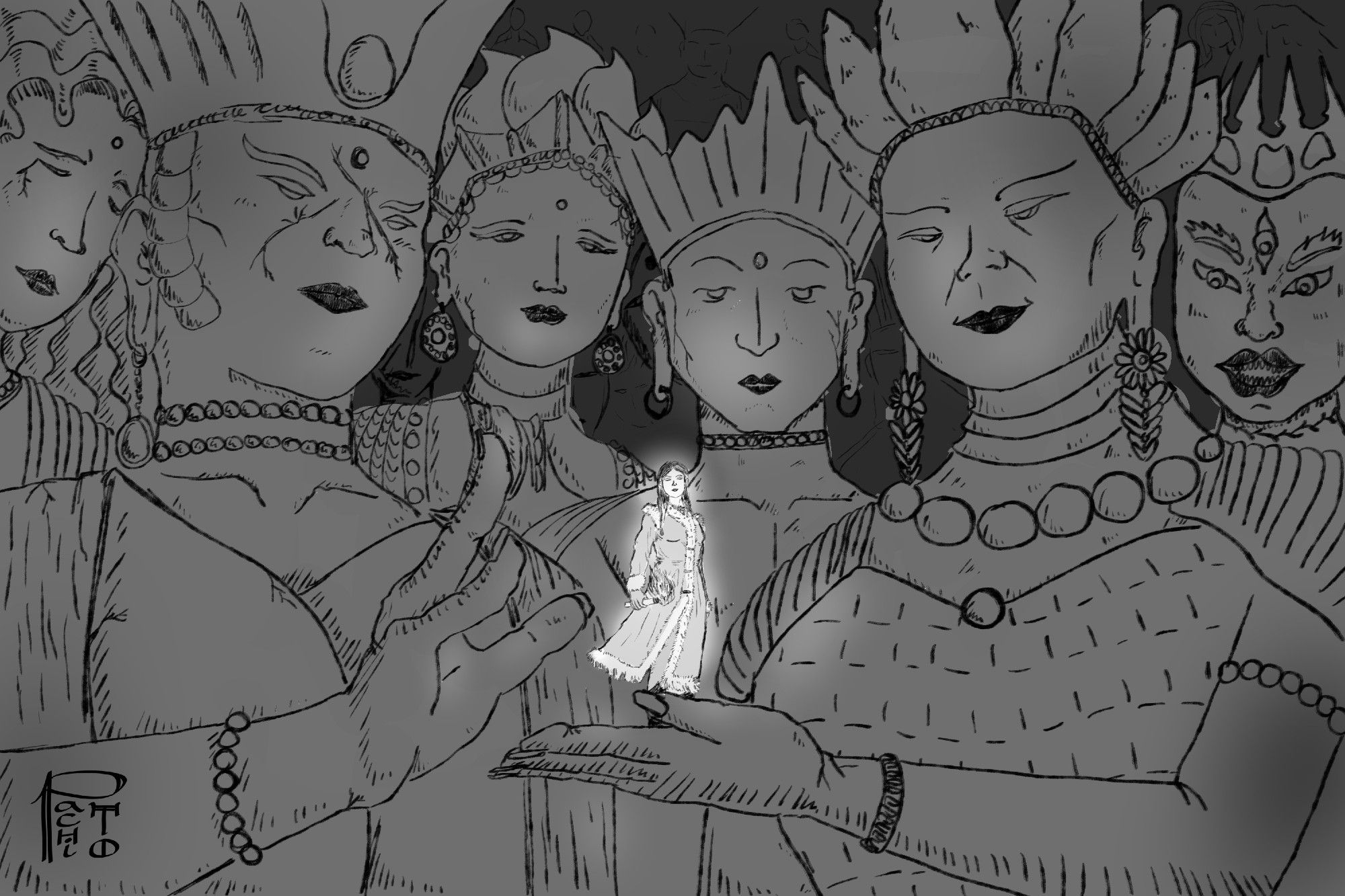|
Kangxi posted:
Pacho fucked around with this message at 05:31 on Mar 15, 2024 |
|
|
|

|
| # ? Apr 29, 2024 16:20 |
|
Cool art.
|
|
|
|
God this rules so much.
|
|
|
|
This owns, wow Added to OP
|
|
|
|
"That smile can't be real. What does it even mean? What is the emotion she's trying to convey?"
|
|
|
|
Chapter 92: 1860 to 1867 - Gardens in Empty Jails Before and during her sentencing to internal exile following the events of the Tibetan Civil War (1859-1860) also known as the Black Year, Sunitidevi Purgyal, the puppet head of state of the factions supporting a Tibetan Empire, was granted some modest privileges and amnesty from capital punishment following her extensive and public cooperation with the authorities of the nascent Seven Rivers Republic, as well as testimony implicating the former members of the Imperial Restoration Army. She was allowed to maintain private correspondence and accept a limited number of visitors, although she was not allowed to speak publicly on political matters, and the distribution of her letters was tightly circumscribed. An understudied aspect of her correspondence from this period was her extensive conversation with Yuan Xuzi, who was stationed in the 1st Ü-Tsang Infantry Regiment 'Knuckle-Slammers' through much of 1859; she had (briefly) served as a guard in the office of Sikyong Chautariya and was then later was assigned to guard the remaining officials from the Imperial Restoration Army. Letter of Sunitidevi Purgyal, no date Capt. Yuan: Thank you for your kind letter dated from last month. I regard the news of my sentencing with a sense of relief. It must be done. I had at first grown obsessed with the thought of my own death. But now I do not know what to do with myself now that I am alive. Over the past few weeks, I feel the amazement of stumbling inside after a blizzard, collapsing into a chair near a hot stove and having escaped the cold and the dark. But now that there is no end; there is still the rest of my life, as limited as that is. I regard the fates of my so-called generals and ministers coldly; I expect to feel relief that the tyrant is now removed from my life forever but I don't. These men had first seen fit to order me about, like I was a human effigy to be cut up and thrown aside. Now, they plead for me to intercede on their behalf, or lie that they had been secret devotees of a republic after all. He Qianlin had first asked to be allowed to join the army and 'assist in the reconstruction of the country'. Then, when that was denied, she tried to poison herself in prison; she vomited and spoiled the dose. She goes to the executioner's block as scheduled. Still, there are more than a few who had believed in the idea of an ancient monarchy. I know this keenly because they still send me their manifestos and declarations of undying fealty. I cannot burn them fast enough. 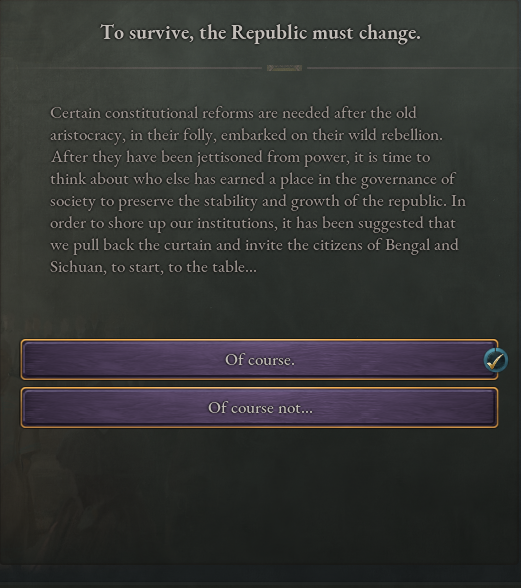 First, I read with some more astonishment the pronouncement that the old Tibetan Republic is gone; a new 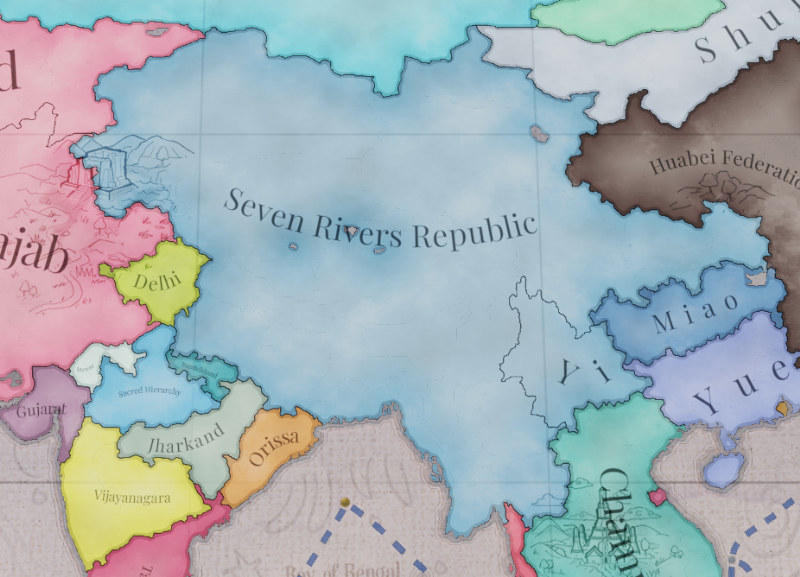 The maps and proclamations are strange objects to me. I see the maps printed with the name of the And what are the source waters for the Seven Rivers Republic? 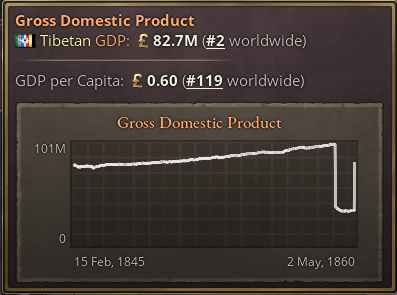 Second, I also read articles about buildings razed and where the fields lay fallow. When I see them, I cannot but feel overwhelmed and awed at the state of things, and it invites further reflection. I have to thank you again for sending me these newspapers, not just Huang's Monthly Pictoral but also the Tibetan Economical Review and even a copy of the The Kolkata Free-Thinker. I cannot thank you enough for your generosity but also your ingenuity. I've heard the Kathmandu Evening Post is a new magazine of interest; I will have to ask my guard Mr. Khandelwal for a copy. 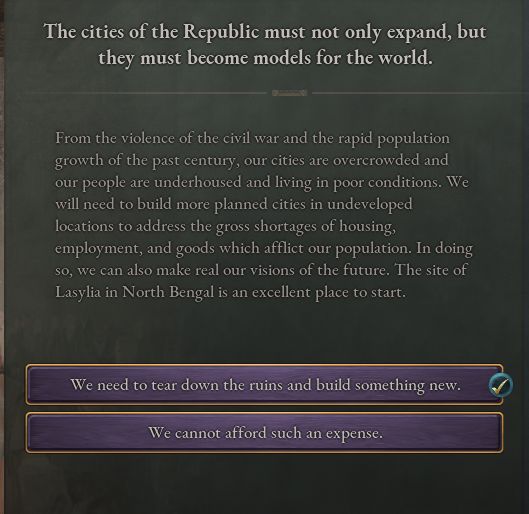 Every day I think upon the events of the past year, I marvel at now how the agents of treason were removed, how readily people are willing to set aside their enmity and work to rebuild, and how soon the rubble is assembled again into piles of bricks, and that everywhere people build their houses again and move on. Is there some charity or organization where I can best contibute? I recieve so many donations from "supporters of my cause and name" and I do not want their money. I feel tainted by it. I could live fairly on one-tenth of this amount. With profound gratitude: Sunitidevi Purgyal Letter of Capt. Yuan Xuzi, Dated July 1, 1860 With this letter, you shall find a copy of the Kathmandu Evening Post. As it is an anti-monarchist paper, it was no problem convincing Col. Sharma to let it through. Although it is a few weeks old, it's still pretty good. 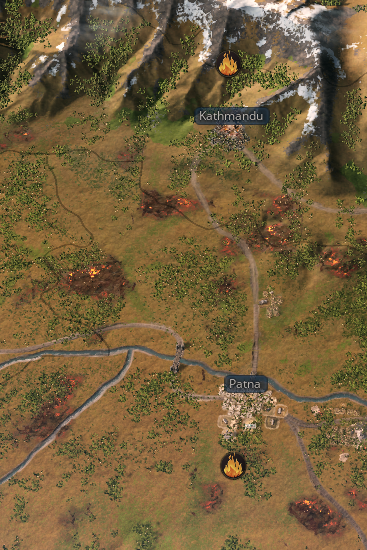 The lithographs and etchings, and also with the poetry of Mr. Shresta, are well done all together, and the description of the rebuilding near Patna is well-done. After everything I have seen over the past year, I read these stories with happiness and disbelief. There is also a photograph called "The Conquest of Tyranny", which shows several Bengali and Assamese soldiers of the Republic sitting on your former throne and one smiling Meitei man wearing the lotus crown at a jaunty angle. I suspect, even with the formality of the portrait, these men would have enjoyed sitting on that throne more than you ever did. 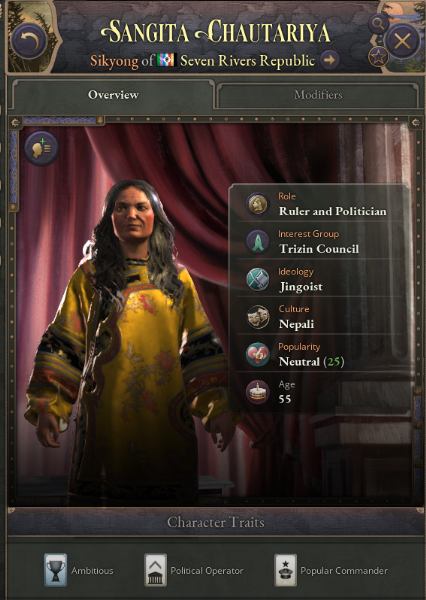 The columns speculating about Sikyong Chautariya do much to embellish her reputation; she has grown popular as the steward of victory and as a protector of civil rights against the random violence of the Imperial Restoration Army. We all have our own stories of the past year; the miracle is that it did not fall apart further and I would not be surprised if she sailed to victory.  In fact, as an appeal to the principles of stability, the government in Lhasa has called for the first elections of the Seven Rivers Republic, precisely four years from the last election of the Tibetan Republic. Yet, in continuity there is also change; the old party system is broken. The ancient Red Mountain Party, that vessel of aristocratic power, has been legally dissolved. Perhaps to secure her own interests, Chautariya split and formed her own party with the symbols of Fig and Lotus. It is a calculated appeal to religious interests and those monastic holdings which have not been looted and the inhabitants scattered. 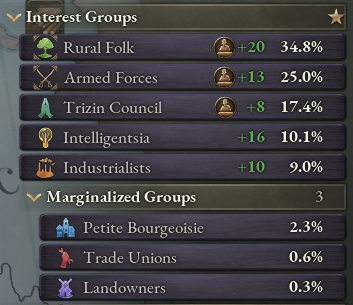 But finally - the newspapers like to use their flowery language, but I am tempted to believe this is true - the old aristocracy is spent as a political force. The same group of about 30 familes at the top, and of perhaps a hundred and twenty below them, are now in large part scattered. They may in twenty years time achieve a fraction of its former power; they may retain their names but aside that they have lost their legal power. 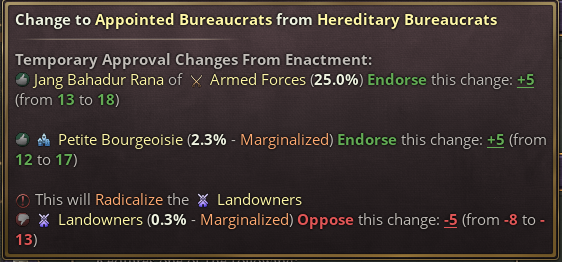 Perhaps to secure the results of the war, Chautariya runs on a platform of bureaucratic reform, of 'clean' government. I understand her reasoning. I suspect there are other ways to best direct her efforts - more bread and water politics.  In distant Kashmir, conditions for the working poor are so bad that many would gather their meager servings, leave their homes, and then board a ship to go abroad. 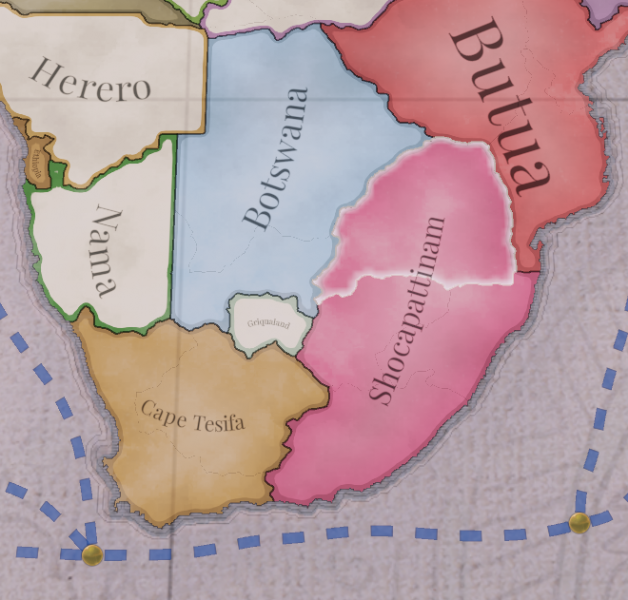 Much of this settlement, as I read of it, is centered around the silty Ikwa River; to the Tamil colony, Shocapattinam. 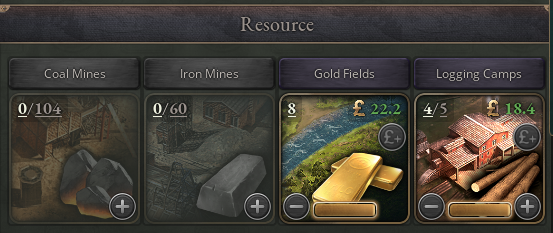 There are stories that there is gold there, that if you crush a rock there is gold dust and larger nuggets inside. 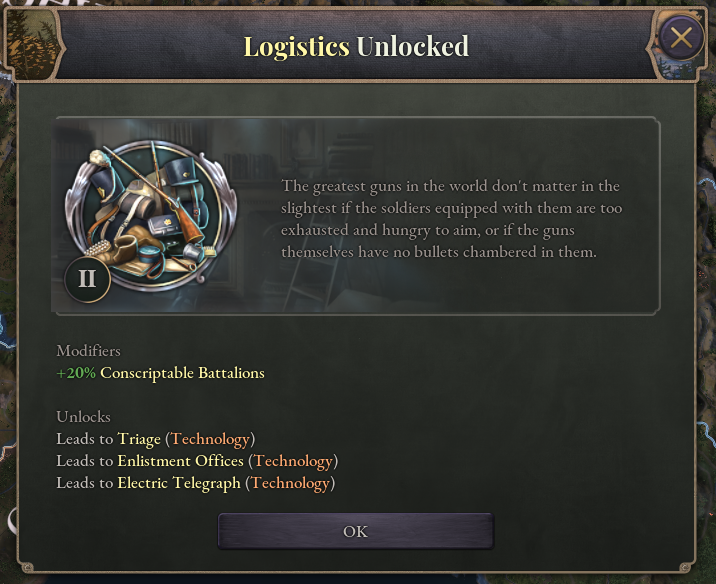 The mechanisms of such a mass movement of people are like that of armies. Additionally, I have head much about the novel The People of Gold Mountain's Edge, by the novelist K. Viswanathan. This is a popular saga about a migrant family. It's been translated into Tibetan, and it should not be too difficult to locate a copy if you ask. Sent respectfully, Cpt. Yuan Xuzi Letter of Sunitidevi Purgyal, December 8, 1860 Thank you again for your letters and your most recent visit. These letters do much for my sanity; they stop one from self-obsession, which is the worst kind. Despite my current situation, I still find my ways to learn about the world. I can see the fences coming back up from my spot on the hilltop; farmers are coming back and portioning off the land for their animals. 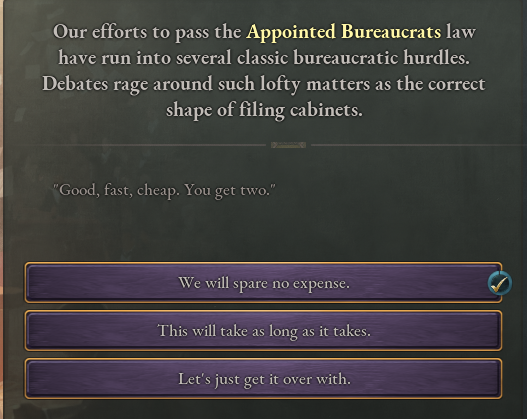 I would note that civil service reform is sorely needed, and one reform that I had attempted to bring up without success. Since the days of Gyalyum the Benevolent, there was talk of fair laws and just ministers. However, this was not a popular reform, and would be continuously opposed as offices are so often inherited by specific families and managed as the bases for their power. The popularity of these older houses, as well as the network of personal relationships cultivated by them, were the reason they could seize the offices of the Tibetan Republic, and so any attempt to crack down on nepotism would be a serious reform. It would also be bitterly opposed.  Yet electoral politics is still a question of how to spend limited resources and appeal to specific groups; who can put up a candidate for a seat and who can print pamphlets or hire proxy speakers to canvas on their behalf. The National Alliance, I read, has trouble this year, although they did even before the war. 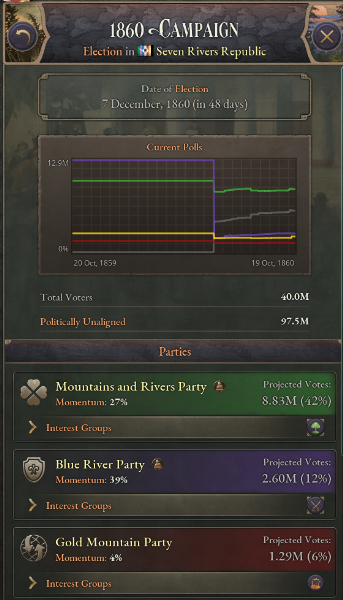 The old Red Mountain Party is gone. The Tibetan and Nepali aristocracy that supported them is scattered. (They were already combative when I had the dubious honor of presiding over their assemblies.) The monasteries have mostly sided with Chautariya and the Fig and Lotus Party. That leaves their third power base - the military - under the Blue River Party. Even then, the army is not what it was. The officers that did not defect, as one can imagine, are staunch defenders of the republic, and the lower-ranking officers, at least those I read in interviews, say that it was the atrocity of the Imperial Restoration Army which converted them into staunch defenders of a republic and equality before the law. 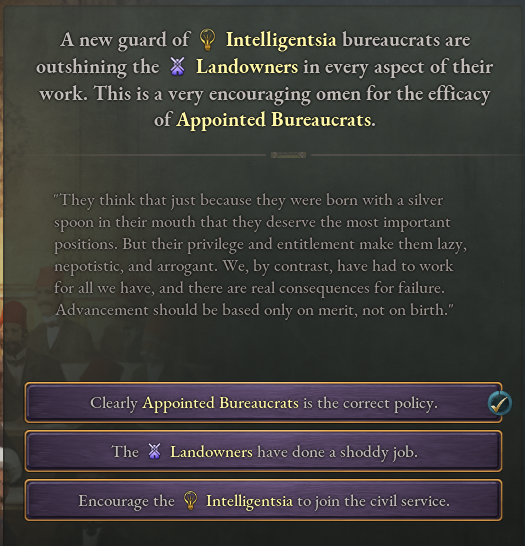 The last days of the campaign were spent trying to win over the old National Alliance voters, promising some abstract reform but also establishing a new voter base. But it was too late. She was a wartime Sikyong; another man made better promises about peace time.  Chautariya lost her election, and in the first peaceful transfer of power that did not involve someone's death in decades; I read that she only stepped into an omnibus and returned to life as a member of the legislature. I read that she spoke to Shakabpa before the ceremony; I would have loved to have known what she said. She was awfully kind to me, far more than anyone could have reasonably imagined that I deserved. I do not know what else to say. Would it be possible to send more letters to her directly, if not to her office but privately? I would like to thank her. This new man, Namgang Shakabpa. Do you know anything about him? With respect and gratitude: Sunitidevi Purgyal Letter of Capt. Yuan Xuzi, Dated July 1, 1860 My friend: I admit the news of our new Sikyong took me by surprise as much as you did. I've met this man. I was in the army with him. 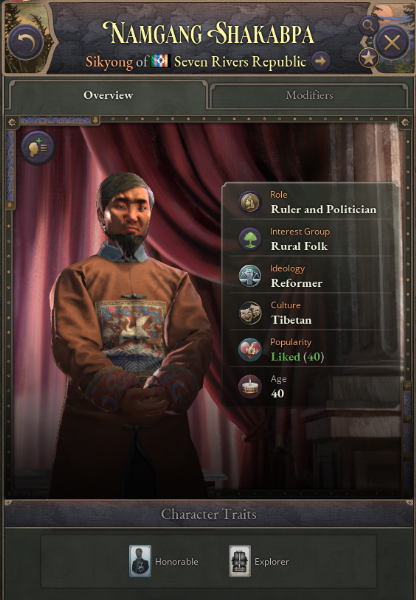 Namgang Shakabpa was commander of the Army of Assam and Bengal during the War. He was very young to hold such a prominent command, and the extent of my curiosity was trying to figure out how he had managed this. He had approached a few of us while we were eating lunch, a young and handsome man, well-decorated, remarked on how good the soup smelled, and then we exchanged personal stories and idle small talk, and he made some observations of the part of western Sichuan where I am from. He then left, and the rest of us soon tried to understand what the hell just happened. From this brief experience, I suspect he is one of those very few officers who attempts to enjoy socializing with the line infantry and did not set himself completely apart from it. 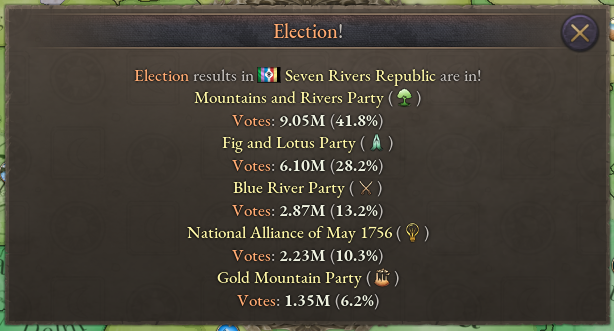 His appeal in the elections was not that much of a surprise - his Mountains and Rivers Party won big in the provincial and federal elections from Chautariya's Fig and Lotus Party with those posters "we must win the peace". That's what all the posters said, that's what the campaigners repeated as they went from village to village. 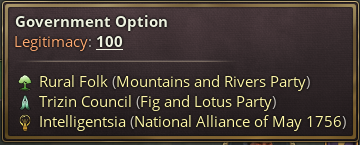 Even so, he still made overtures to the Fig and Lotus Party, as well as some of the old intellectual core of the National Alliance. How did he have the diplomatic cachet to do all this? I suspect it was how so many people came to know his name, and for what he represented in their minds. 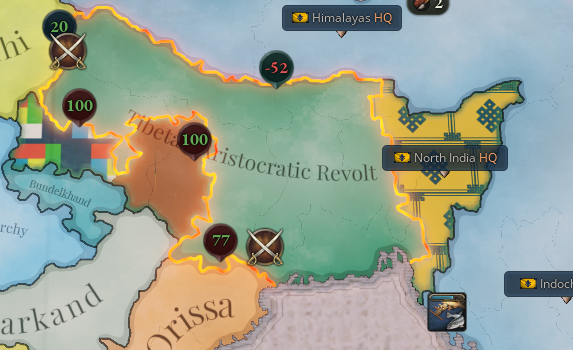 He may have been called an "explorer" - that army ran down the Brahmaputra River valley and liberated huge swaths of Assam and Bengal. Struck right at the head of the rebel forces and fought, smashing his army up against theirs, until the end of the Imperial Restoration Army. 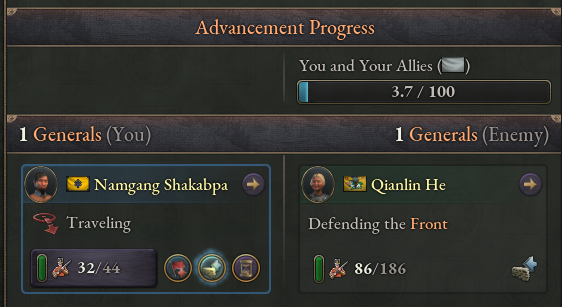 And on that August day where they fought over the river Gomti, and the guns are wheeled out from behind the banyans and the hounds tooth banners and snow lion flags unfurled, and you can hear the shouts of He Qianlin and her army across the green and humid fields of Bengal, and they charge right into Shakabpa's desperate army shaking where they stand, and this time you fear they are going to break through, that this time, history will go wrong and there is no power on earth that can undo it, and then take Bengal, then Assam, and then knock off the golden roofs of Lhasa and end all hope of a republic as we knew in their attempt to turn back history and bring back the old empire and then set ablaze the world in their last gamble. 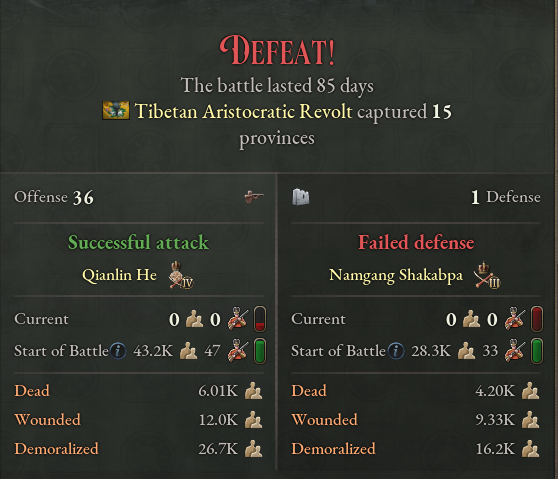 The aristocrats, you told me, claimed to the end that they 'won', but the win was so costly that their campaign was doomed. He Qianlin's head rolled off of the execution block. I would prefer she and Wangyal and all their like wander the earth wounded until the end of the world. And Shakabpa, for not rolling over and dying in the face of it, and still advancing on to Dhaka and Kolkata, was a hero. 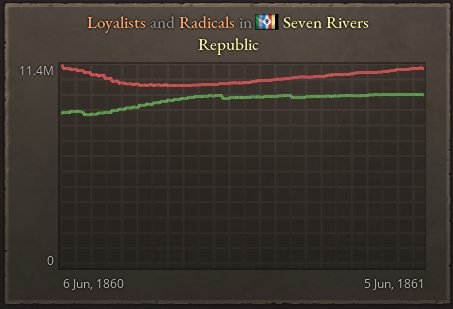 Out of the half-a-dozen serious candidates who would run for office, he had recieved tens of millions of votes; and in terms of approval, I have to admit it's a novel experience in my lifetime to see a Sikyong who was not loathed. 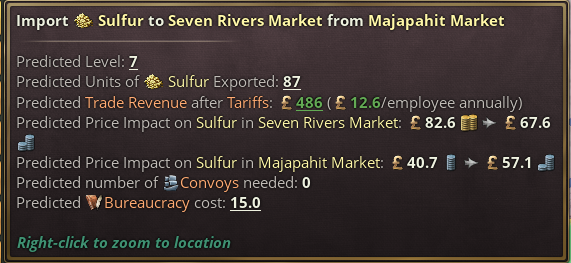 From my station in Kolkata, I saw the ships come back in with ports of call in Belawan and Sunda Kelapa in Majapahit, and that commerce had again returned to our shores. 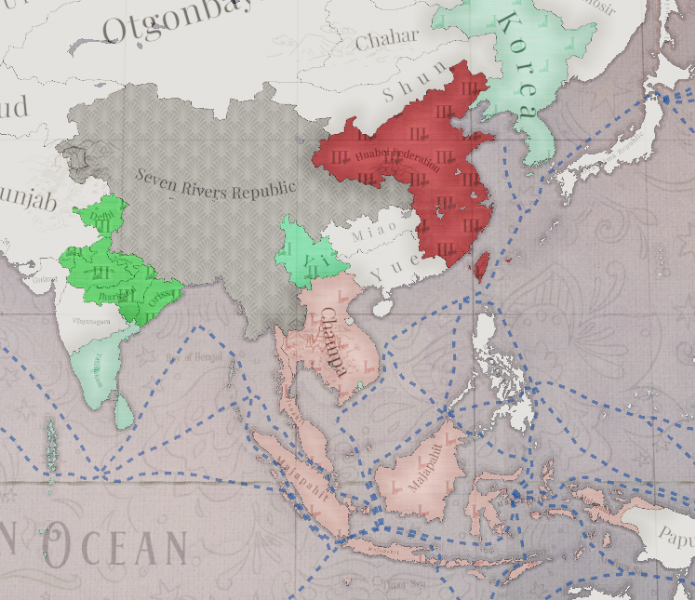 Our new Republic had made aims to mend ties with its neighbors. Majapahit, at least from the statements their diplomats print in the papers, at least seem more receptive, while the Huabei Federation was still loathful. 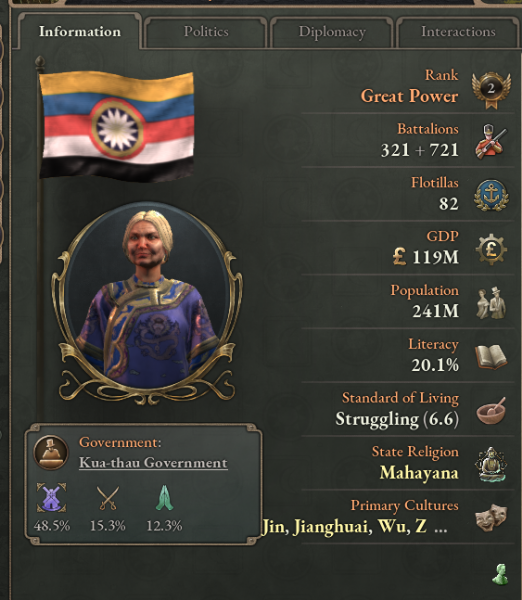 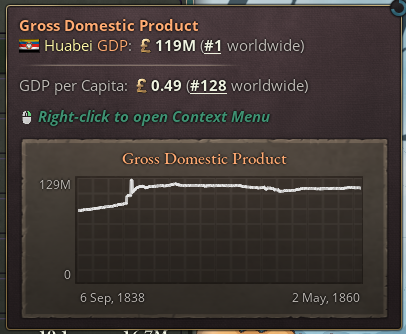 The view from here, at least from our republic, does not look so good. We may compare two potential futures: Wang Yunmei, a general from the war with old Tibet, took over when Qi Shanlan died about fiteen years ago. She was skilled at the science of warfare and even more skilled at self-enrichment. (I hear stories from family members and people who get squeezed just to make the trade routes - greed for bribes requires no skill.) And with that, stagnation for 20 years. 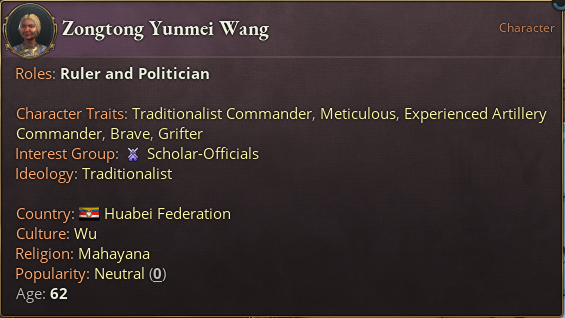 On the one hand, oligarchy, poverty, and stagnation. 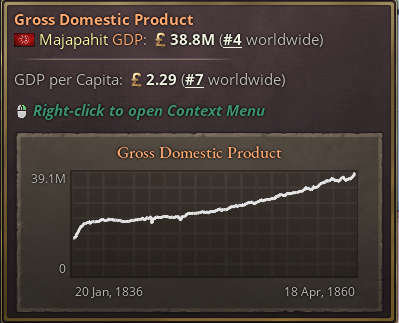 On the other road, industry, commerce, prosperity, stores filled with every new produce and peasants buying their staples more cheaply. But that way still lies authoritarianism. The hope, for any ambitious person in Lhasa, was to prune the best branches of the Majapahit or the Anatolian or any number of other systems and graft them to the circumstances of the Seven Rivers. And still there is an awkward grasping hope - our Republic is a cat walking along the walls before leaping over to the roof of the next house. Very respectully: Capt. Yuan Xuzi Letter from Sunitidevi Purgyal, dated July 20, 1861 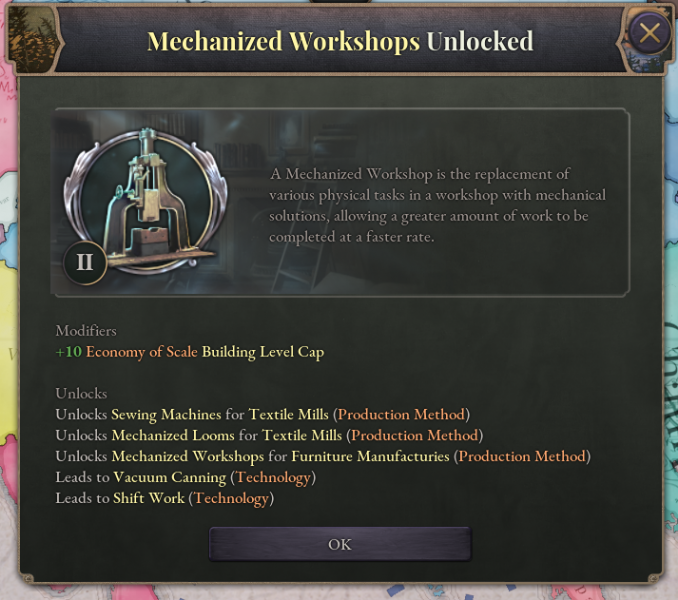 My friend: I have thought much about your past letters as well as our more frequent conversations. I grow to miss our conversations more acutely whenever you are absent. I enjoyed our circuit throughout the garden - it was almost like those stories of lovers, ha ha ha! I cannot but recall your specific expression over lunch a while back: 'the machinery of state'. No longer iron, but steel. I get the feeling, at least from reading about it, that something new and dramatic is happening at this point in history, beyond rebuilding but instead a total reshaping of the landscape. I do not see farms from my hilltop residence, but I see workshops and plumes of black soot. What my captors had wanted was to mend the fence after the animals escaped. 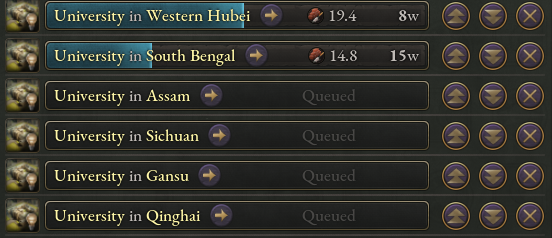 The legislature passed a bill on the expansion of higher education and the establishment of great schools and academies; I see advertisements and read stories about dozens of institutions which would instruct pupils on the skills necessary for this world. Every skill one could possibly imagine: agronomy, machine design, foreign languages, engineering, history, military sciences. Would it be possible to attend one of these universities after my release? Or at least, to find a list of the books which are read and used in specific courses of study there? My education was rote recitation of books in old Tibetan that I could barely understand and I would like to hear very much about these new forms of learning. I think there is a new common language being taught in this republic, and I fear I will miss it and be left mute. 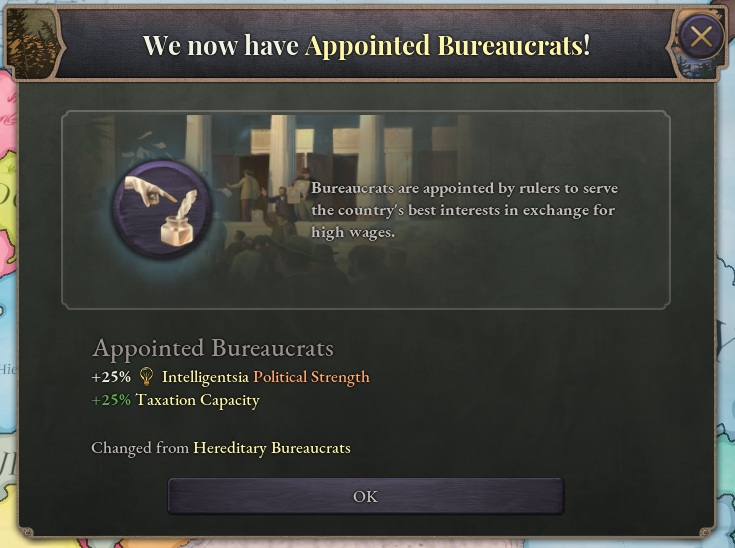 I did finally read in the Tibetan Economical Review that the legislature has passed Chautariya's old dream of bureaucratic reform. Offices were once held out as prizes for officials to compete over, or as ways for families to enrich themselves, although this depends on the ability of the person doing the appointing or how examinations or censuring are implemented. In my day, I attended a meeting where Wangyal and his cabal apportioned out the offices themselves and drew up a lined chart based on their expected potential incomes from bribes. It was at this point where I knew I did not have such an ability to act on anything and just sat there. 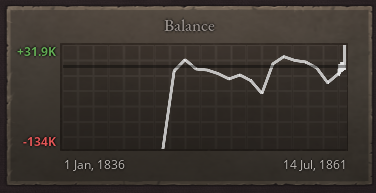 And on the very next page, I see projections of improved tax intakes, meaning that the state budget is now in a healthier state - certainly enough that the republic could afford more ambitious projects, but also pay down the debts of the war years. The Kolkata Free-Thinker is calling for a design contest for pictures. Contests and hopes to illustrate what a future my look like. Change builds upon itself; I do not think it is founded by personal ambition so much as it is that the calls for reform have echoed louder and louder and now everything has to be done. 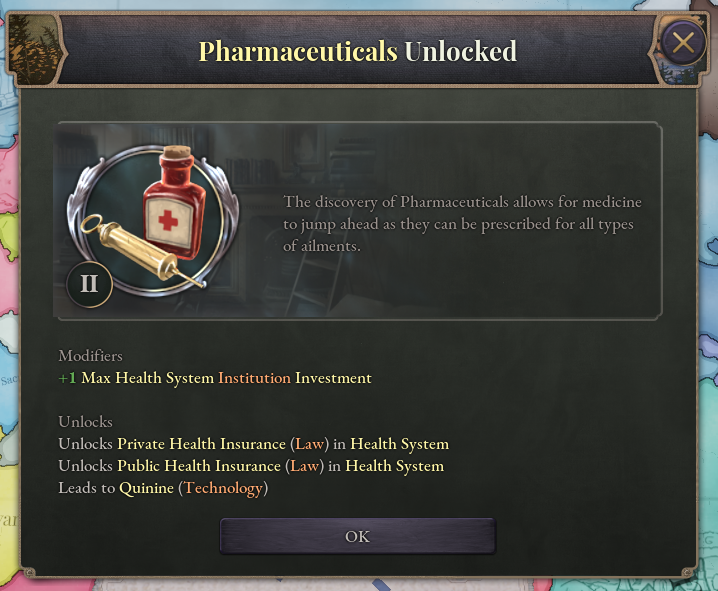 But a reformed and virtuous state is only just if it can protect all of its people. I hear now of the widespread usage of quinine in hospitals and in the army in the Kolkata Free-Thinker. Frankly, I am amazed that such a thing had never been used before - it had been widespread in the Chachapoya state and before that Tawantinsuyu for centuries... But a treatment of malaria alone represents a greater conquest than a hundred battles. I kept this story closer to my heart, and I write it down for the first time now. When I was a puppet-empress, I was once approached by a woman and her very young son who had broken into my quarters. Before I could ask them to leave, she begged me to assist her. He was malarial. His skin was jaundiced and there was a very faint smell of vomit. He had an epileptic fit earlier that day. She had asked me to lay my hands on him and bless him that he may be healed. I said some kind words for him. I told him he was a good child, and that he would soon have his health, and his mother should be proud of him. No, no, she said, not that voice, use your real voice. So in response, I use the loud voice that is reserved for reciting ritual texts and commanding armies on parade. The boy groaned and said spoke with no words. His mother bowed and then told me, with a hushed and reverent voice - "Thank you, Your Majesty the Empress Lasya." I wished her well, stepped out, went back through the nearest door, buried my head in the silk sashes, and cried. Excuse me. I cannot find the strength in me to finish this letter. I apologize for acting in such a manner. With gratitude: Your friend Sunitidevi Purgyal Letter from Captain Yuan Xuzi, dated July 20, 1861 To my friend Sunitidevi: We have had the chance to meet many times after that last letter. I will say again, there is nothing in that letter you need to apologize to me for. You have done your part in bringing the great criminals to justice. You have asked me to write more about of the outside world, so at least this may provide something worth thinking about.  The cities of North and South Bengal remain a center of modern industry; while they had in the past been centers of handicrafts: textiles and furniture making, they are now centers for the forging of machine tools, aniline dyes, and Parveen's steel in bulk. The cities of Lasylia and Kolkata, among several others, are now centers of industry, manufacture, and more complex means of production.  The Seven Rivers Republic is so rich in its production, even after a year of peace, that they are now selling coal to Huabei; astonishing considering they already have so much of it. 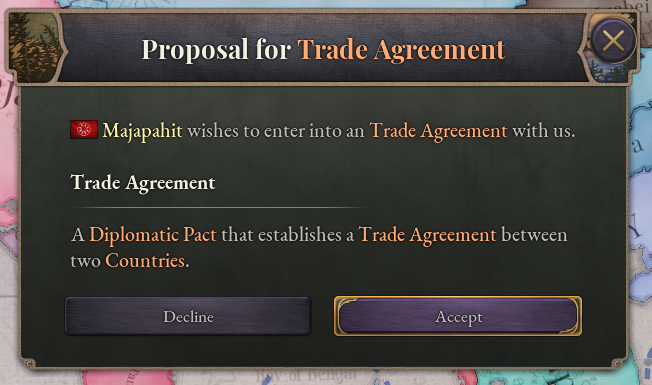 Formal arrangements in trade have been signed with Majapahit trade agreement; this involves a general reduction of tariffs and the later possibility and there are some who even say there is the possibility of an alliance. That would have seismic changes for the region, and Tibet would would no longer have to fear an incursion from Huabei. 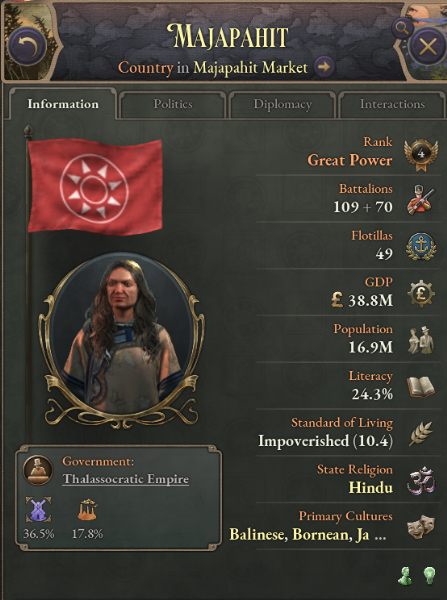 The industrial might of those islands is unsurpassed; Java is alone one of the wealthiest places on earth, with Wilwatika and Jayakarta forests of smokestacks and every street is dotted with gas lamps. The Seven Rivers has the potential to catch up to all of these, at least the papers say. 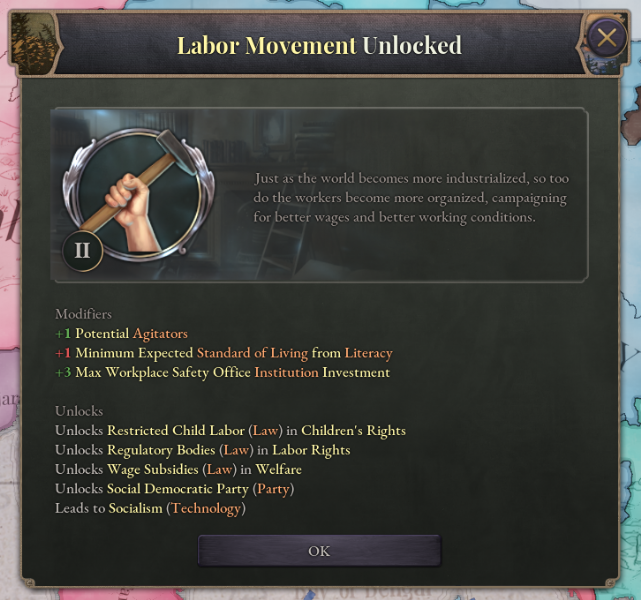 Of course, any talk of industry brings me to the matter of organized labor. Such organizations had existed since the early Tibetan Republic and you would have heard of them as voluntary associations or guilds; but now there is a greater structure and power to them. They do not seem to exist only as social clubs or voluntary associations around a vague slogan, but are directed towards specific goals and aims, as armies move towards an objective on a map. 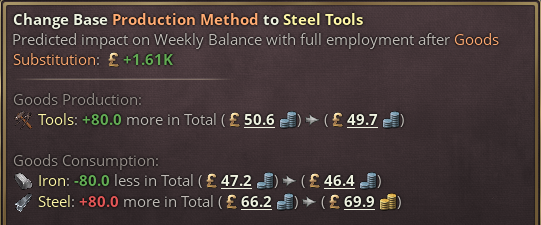 All of this is like a steel hammer that struck in my head; I spoke with an army friend of mine who is now a foreman - these factories were hot and hellish places and one is amazed to hear about them, or to walk through them. They are places of awesome beauty and terror. I read some journalism, of course about life in Jayakarta, and the novel, "The Tragedy of the World" by Yu Guo, and I'm rather anxious to know what you would think of them. I know some readers do not enjoy the author's digressions about sewer systems or the street urchins, but you've always asked for longer books anyway. 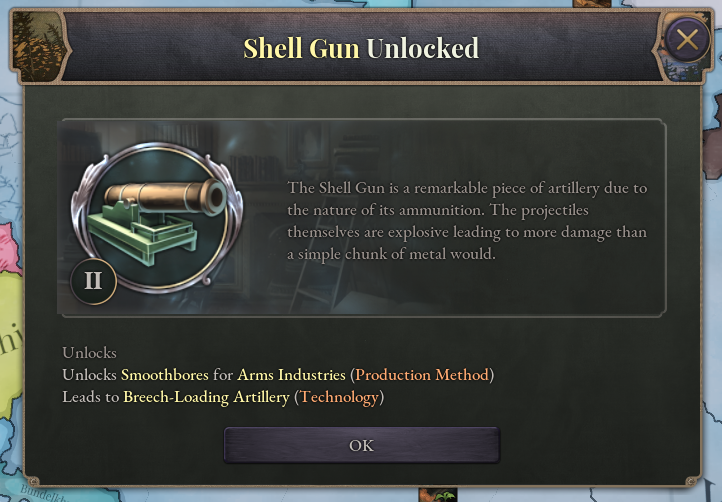 Really, it's like somebody set off some artillery in my head and now all the hot shrapnel are bouncing around inside it.  A friend of mine got a job at the Department of Household Registration at the Ministry of the Interior - it is a vast organized collection of cards and papers about names and families in villages - greater than what any emperor of the past thousand years could have dreamed of. It is not just about knowing somebody who knows somebody else, it is all papers organized somewhere.  On top of all that, the legislature is all aflutter with talk of more schools and more people knowing their letters (or characters) and numbers. 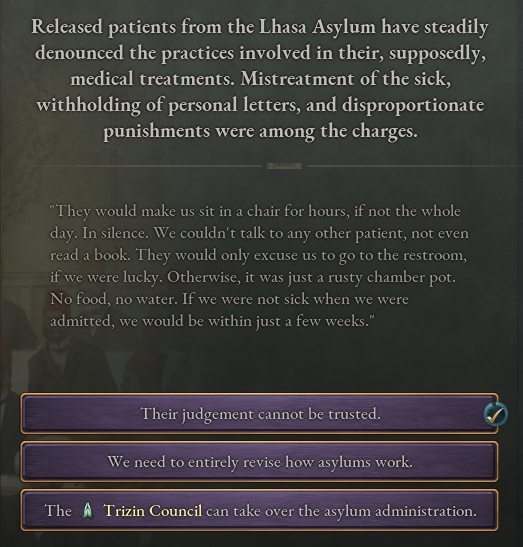 The Lhasa papers, on the other hand, are angry about conditions in some of the privately run asylums - prisons, really - and the illustrations are about individual cruelty and institutional neglect. 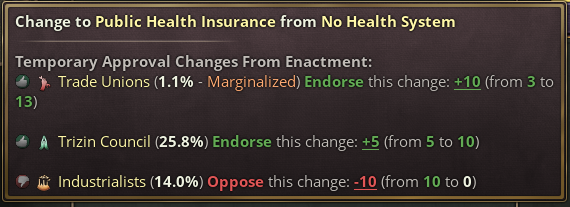 That, in turn, has made some interest towards a system of government supervised in healthcare. Frankly, I can't make heads or tails out of the proposals, although you might. A lot of new delegates were eager for this; many out of their need for social reform and because they are mobbed by the members of their districts, some out out of a want to be liked; not a few out of their need for a legacy. The monastic heads, again one of the few remaining institutions that had survived from before the civil war, were encouraging of such a plan. 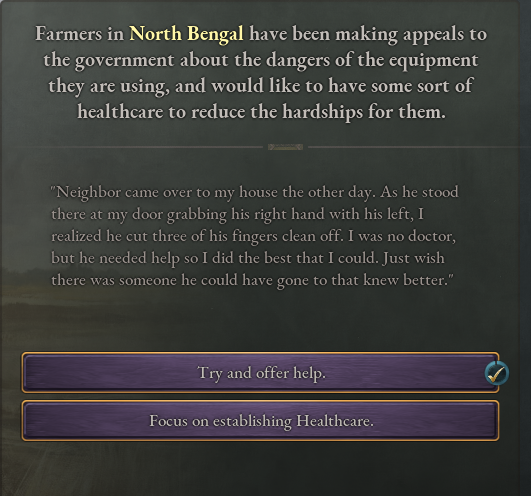 I mean, if its down to just paying some doctor to make rounds around the villages in the mountain paths to pull teeth, variolate for smallpox, or deliver babies, that counts for something. I can understand why the central government might want to throw funds at this. You see stray kids picking through the garbage your army leaves behind and then really think about how things are in this world. 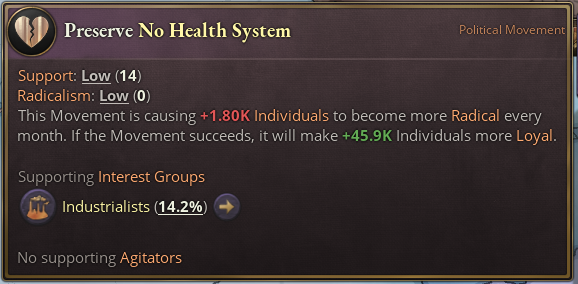 Though of course, there are the those concerned about expenses; the understanding is that it would be a "moral hazard" to those who would use it. As if plaster casts or bandages were vices! 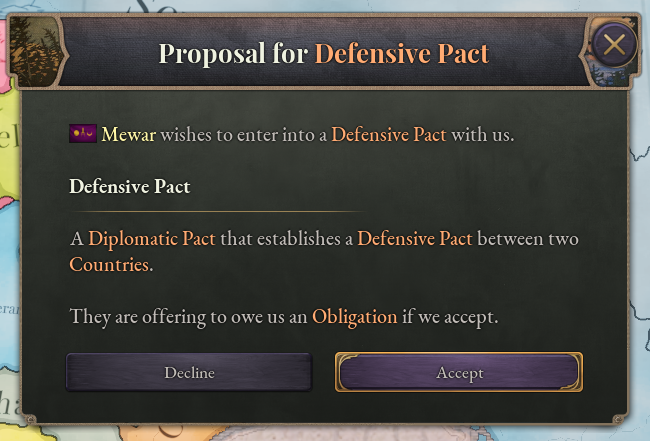 Now the Seven Rivers Republic is in the direction of standing up for its much smaller neighbors, for their benefit more than ours. 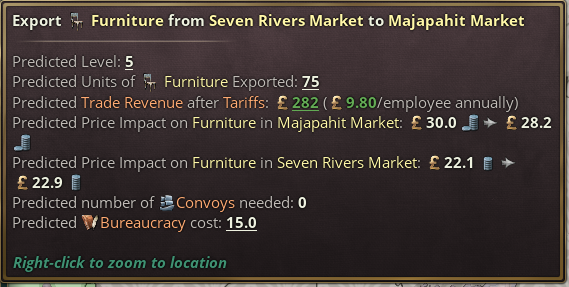 And now with the increased export of desired manufactures, not just raw material; the republic is not just rebuilding what was before, but is occupying a new separate place in the world. With kindness. Your friend: Cpt. Yuan Xuzi A letter from Sunitidevi Purgyal, dated September 1865 My dearest friend: Firstly, I have to thank you for those books. I read them over and over again to pass the time. I've read the translation of Nezahualcoyotl and the new translation from Arabic of 'Uwilryus, though I regard your visits and letters as the greatest gifts.  As suddenly as it had opened, the door shut. The ambassador from the Majapahit had delivered a note declaring, that by the order of Sri Maharani Jayaa Suryavansha, etc., etc., that the treaty was declared in abeyance, null and void, etc., etc.. What this means is that everything bought and sold from Majapahit is more expensive and now both our nations are poorer for it. I cannot say why or how the Marahani would declare the treaty dead on her own, but my first guess is that the export of our republic's manufactures, I believe, would be percieved as a threat by Majapahit industry. If anyone has her ear, it is the great taipans. 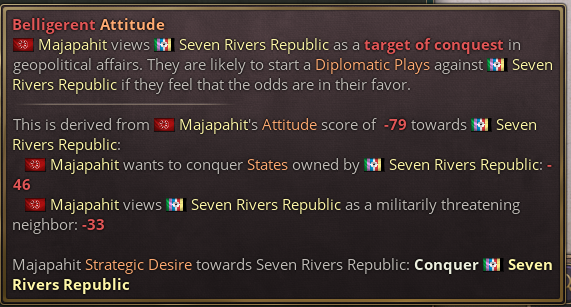 The press is talking about this with anger and confusion and they throw around the word 'betrayal' a lot; perhaps coveting our nearer territories. I cannot imagine that the Marahani would be so brash as to march up the Kra, or, more likely, use her navy to land an army on the Bay of Bengal. Would anyone do such a thing? Of course, that thought really makes me laugh. 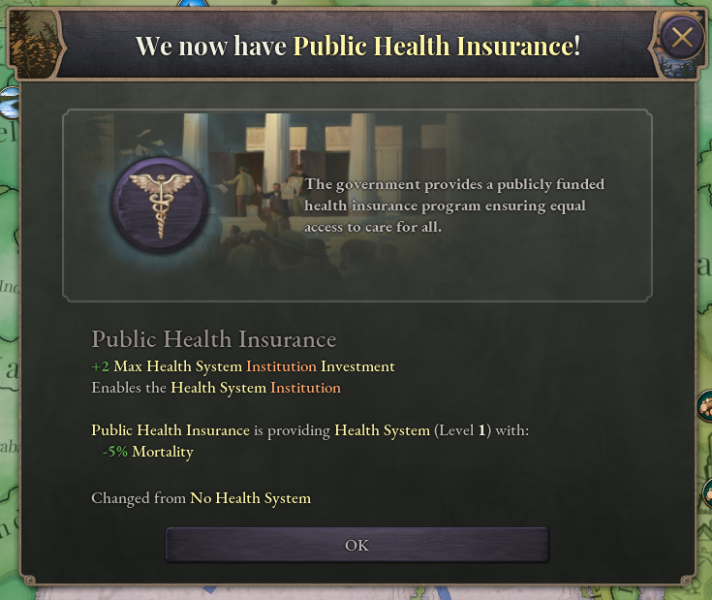 But on a more serious matter, I find that the health care bill passed. It all seems deceptively simple but the intent is important - funds pooled by the state for the care of its citizens. 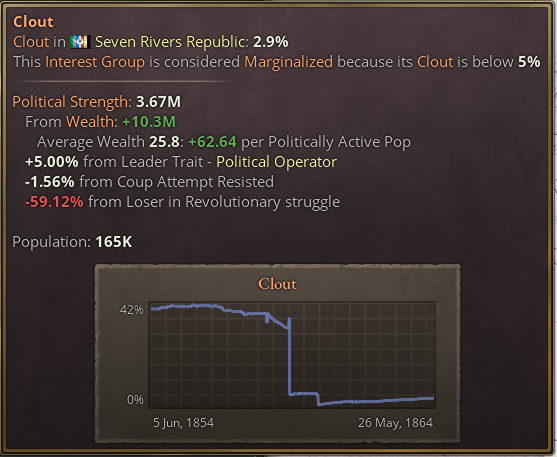 Many things are possible. Could you have imagined such a series of laws passing ten or even five years ago? I for one attribute this, in part, to the extinction of aristocratic influence. They held the seats of higher office for their own sake, and any policy or law that was passed was out of blatant self-interest. Any policy to advance the war was struck down because it would convenience some warlord annoyed they would pull down his vineyards. I recall them now, at a great banquet held during my so-called reign. The food and wine were passed around, the music played, and I sat around in the robes of authority yet having none of my own. In a few months, their world was already dead, even if they didn't know it. I could only look past them, seeing their bows, and reciting my set phrases in response to theirs. A gilded frame over a warped canvas, or a silk cloth eaten through by moths. The aristocrats said they were wolves. They thought they were wolves. Wangyal, with his line of supplicants and nobles, even up to the end, talked about the martial glory of Lasya the Holy, even though around me he had the cloistered and nervous air of a trainee monk. They thought that disaster shouldn't happen to them, it's something they do to other people. 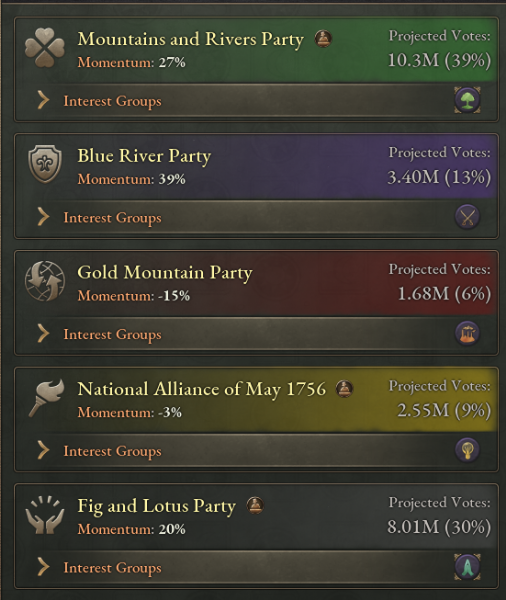 But then again, I am not giving the other parties and the people behind them an appropriate share of the credit. The war has impressed in many peoples' minds a need for not only preserving the peace, but producing a peace that is not an indignity to live through. It brings to mind the elections of '64; where the old party system was still broken, and a multitude of parties competed for new constituencies and for the many new voters. 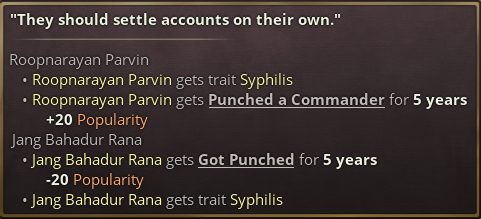 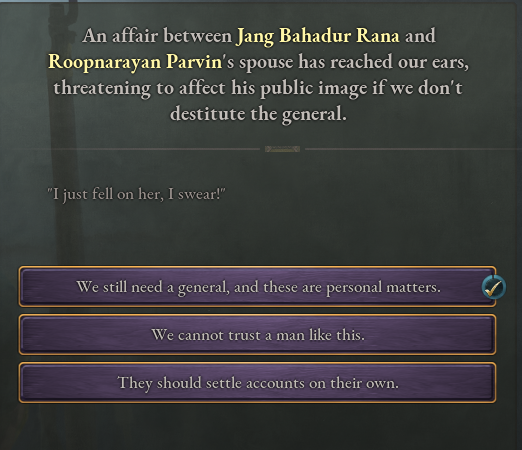 Certainly, I find the stories of mudslinging and attacks amusing, especially with the Gold Mountain Party and the Blue Rivers party going after each other so intensely; it is less over issues than the personal character and disputes of prominent leaders.  One thinks this pulls back the curtain and shows how nasty the reality is, it is less choreographed than than the 'elections', I'm told, of a few years before. I grant I am more cynical than most about this, but there is something about trying to present things as they are - the petty disputes and human emotions that make up the every day. Hearing these stories is a familiar thing, compared to the gossip that my other guards share with me. I'm reading this new serial - all I can do is read, it seems - which is supposed to be about the life of Lasya the Holy and her invasion of the Third Han Dynasty.  Are these kinds of things popular? I grow less and less familiar with the world from this house. I hear about the further expansion of the education system; I can imagine schoolchildren pretending to be Sun Wukong or Gesar, of course, or the one person who could read in the house reading this aloud to the rest.  I think again, for comparison, the death of Chautariya. I felt as if a second mother of mine had died. The crowds came out to the procession before she was cremated with full honors. I heard one of the guards crying. She could easily have been cruel; but for me she was kind. 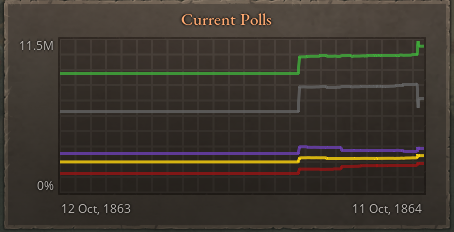 This also meant, to speak more bluntly, that Shakabpa was assured another term; his opponents may complain that he was "buying votes", the same way that a local village mayor says he'd bring in a real doctor if you elected him but he only hired some quack who pulled your teeth out. The new guy is at least appealing to peoples needs and responds to active groups and pressure. 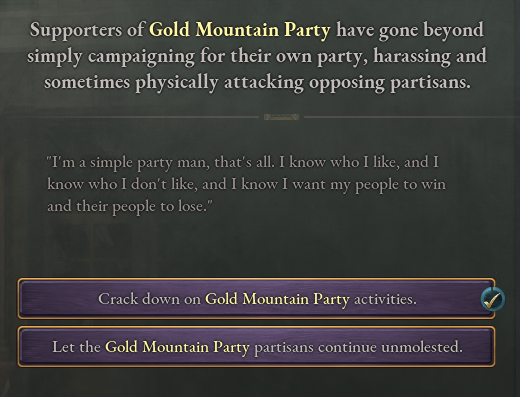 None of the others could mount a successful challenge; a few minor parties had petty violence. One editorial called it the 'voice of the mob', the racuous state of democracy. That's what the aristocracy always feared - The Mob, as if it was unchanging and unknowable and not composed of groups and peoples to negotiate with, or individuals. If they had the decency to step aside and allow other people to voice their concerns, they wouldn't have been that damned foolish. To hell with them. 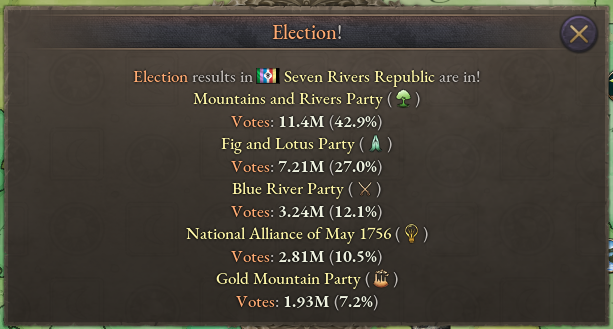 The Shakabpa administration was, not at all to my surprise, granted another term by the electorate, and with the Rivers and Moutains party claiming just under half of the seats in the legislature. 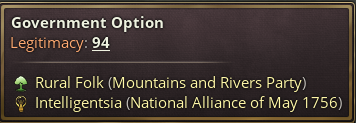 The coalition with reformist liberals was a surprise; the intellectuals who had lost nearly everything by 1836, ground under due to cynicism and the failure of their first dreams, have now finally have attached themselves to a stronger partner. 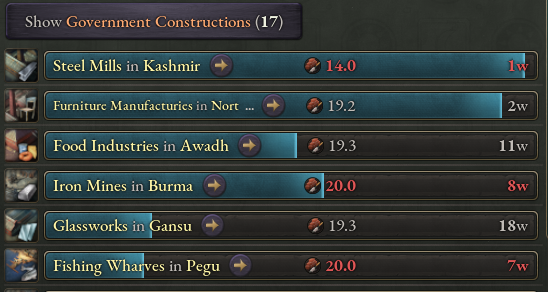 The masters of private industry have made their own plans. I see the smokestacks of a distant town now rising up from my window.  And still, there is the ebb and tide of commerce. But then I heard that raw materials are being exported to Huabei - is that a better or worse thing than manufactured goods? I admit the details of the modern science still elude me. 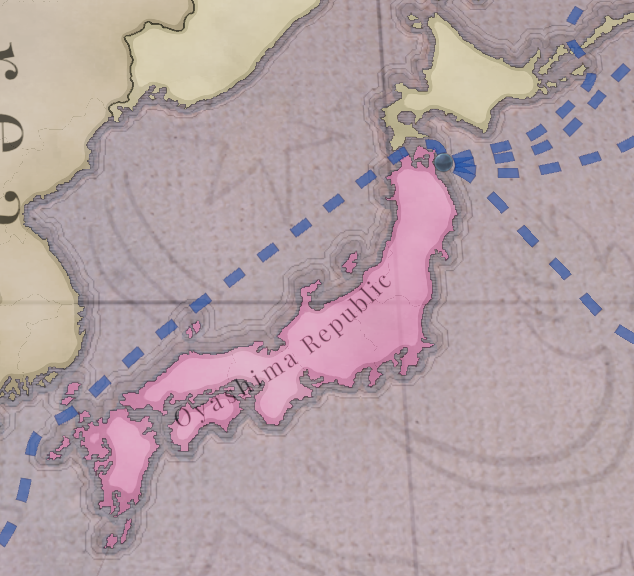 There is also the unification of japan with the annexation of Tsutsui; there is now a single unified state under the Ōyashima Republic, sitting cheek-by-jowl with the Ainu to their north.  But the greater worry, the thing I fret about most was is a shattering of the peace on the continent. The papers, the more recent ones, began to fret that Huabei moved against Shun. 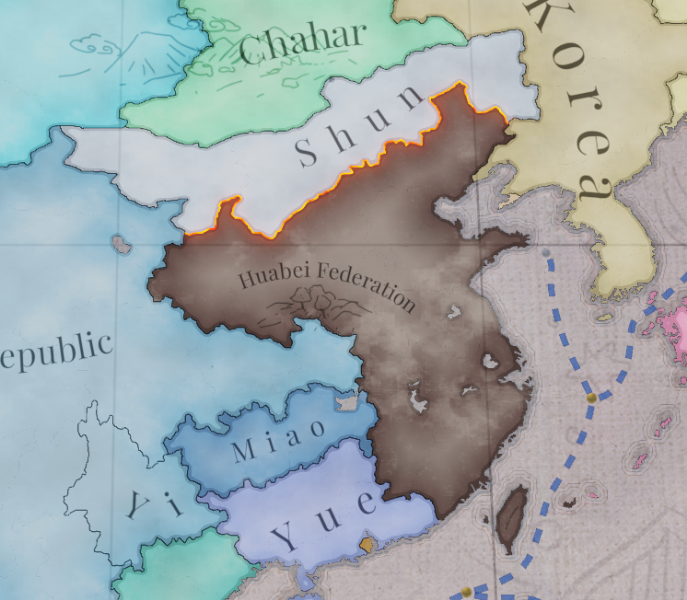 After some 20 years, again after the tumult of the last year and then decades of stagnation, the government of Huabei acted upon the world again. 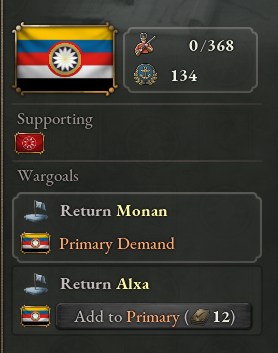 And, as if to deter the Seven Rivers Republic further, the Huabei government had produced assurances from Majapahit - any intervention against Huabei would be considered in opposition on Huabei and Majapahit both. Could one fault Shakabpa for this? This was an administration so desirous of peace and so loathing of war he could not call for a reason to go to war even if he wanted to. But now one wonders what Huabei shall do next, what neighbor they may threaten or coerce.  Even worse is the use of the larger Huabei army. It is like killing a mouse with an steam locomotive. This was, on the face of it, wholly unnecessary - their standing army would have been enough. It is a message, a way to communicate not only to the Seven Rivers Republic but to the world. As if they would say: 'Go ahead. We shall expand further, even further north, and you cannot try and stop us.' And their desire was not only for peace but still for more territory and to act with impunity.  I hear rumors that there was a quiet sale of modern rifles to Shun; it was not enough. 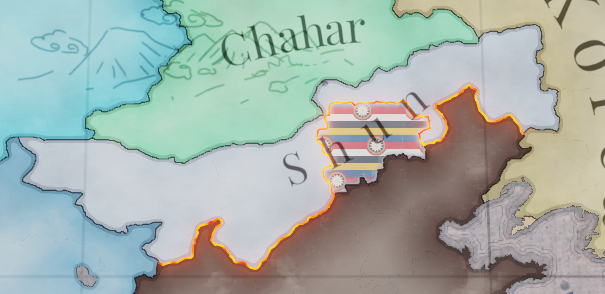 It could never have been enough. Ulanqab and Hohhot fell in a few weeks; Ordos will fall in a few more days.  I don't even think that news of the revolt in Luca Antara against rule from Java may have arrived to Ordos anyway; all of the telegraph wires went through Huabei anyway. 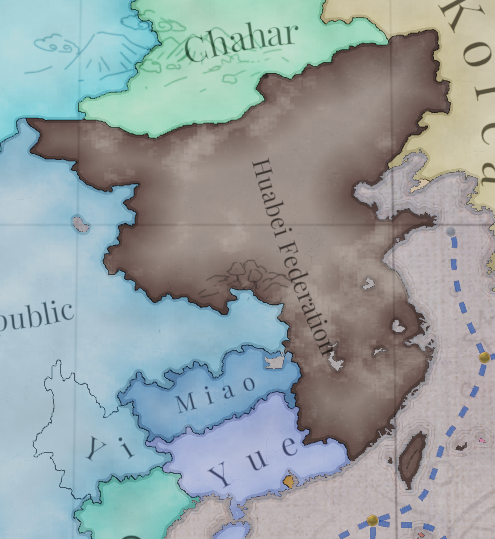 The war was over in months, the government in Nanjing proclaimed with fanfare the "successful reunifiation of the historically important territory in the north".  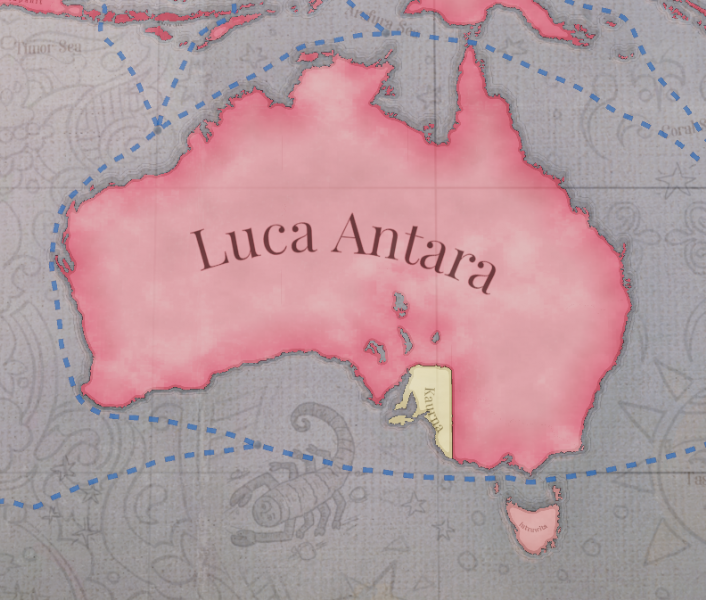 And soon the rebellion in Luca Antara was crushed. They probably had no hope of winning; but the fact is that they had dared to try. One feels that the world is changing more rapidly beneath our feet, that such a revolt was even possible.  Even the "conservatives" of our society were changing; the Bengali radicals of a decade before had now become stakeholders in the newer order, and proclaimed loudly that there will be "millions of tangka spent for defense, out of recognition that the Huabei oligarcy would always and everywhere be a threat to the peace of the Seven Rivers Republic". 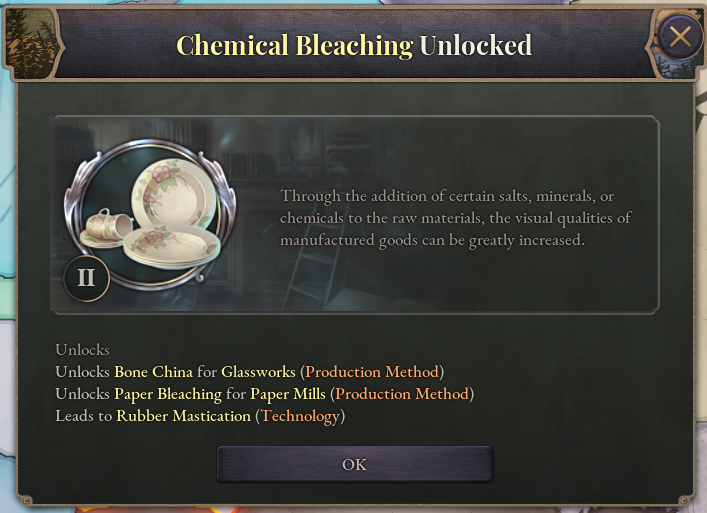 A slate could be wiped clean. Sometimes a paper is made from bleaching the pulp, sometimes the porcelain has bones in it. I've been thinking about this for too long as I pace around these rooms and circle around the dirt track in the garden. Is all our history built up on a story of sacrifice, or do we have to at some point feel pity for the ox on the altar, the innocent cut down by the sword. the child buried in the foundation of the building? Excuse the rancor of this letter; there is much to say, and not all of it is best served by letters. I miss your company -- and hope dearly to see you at my side again. With love: Your Sunitidevi Letter from Maj. Yuan Xuzi: January 1867 My dear Suniti: Are you ready? The end of your sentence is coming soon; the judges, as we expected, have approved the commutation from ten years to time served on grounds of good behavior. 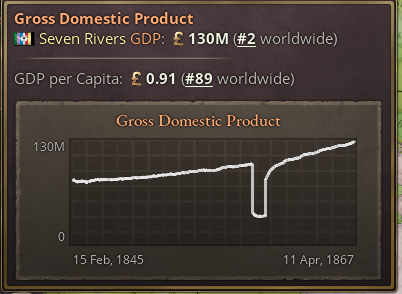 Somehow, against all reason, I have hope. I see it in weeds growing between stones and new towers being pulled up in the cities. Perhaps now the Seven Rivers shall break out of the long history of poverty that was its lot for the past thousand years, 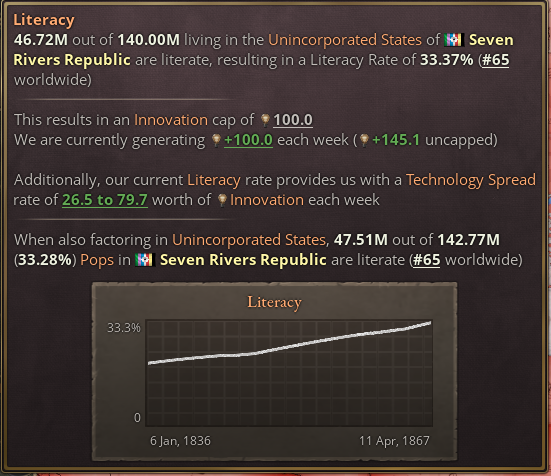 and a new kind of language or philosophy be taught. Maybe a just life, like the modern trades, can be taught from books. And maybe there is an arrangement, to defend that state and those trades and that industry.  And still, I read, I worry, I fear - that expansion is the only way to survive, and with "diminishing returns" on parcels of land or mines or resources, the only way for states to survive is to expand. 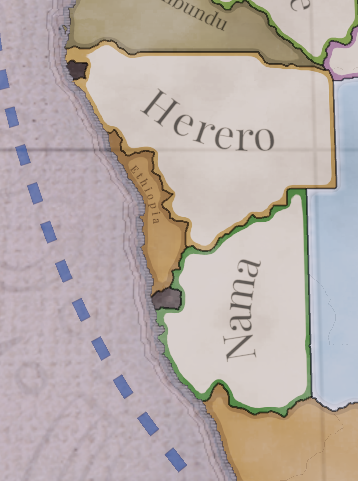 I read in the Tibetan Economic Review that Huabei had already done so, setting up their own trading posts as a counter to Ethiopian interests in the region, at Kulou Hai and at the coasts of Kalasi further south. I have heard conversations about that, and really I don't have much interest in heading out for such a venture. I have everything I need in between the Seven Rivers. 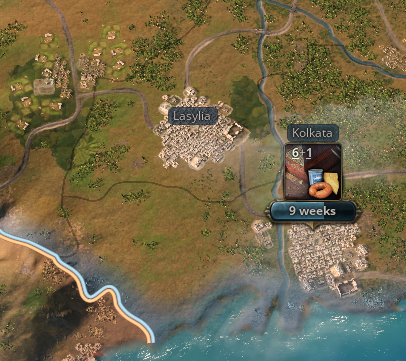 Lasylia, as you inquired about, is a strange town. There are empty square boulevards in the center and factories not too far removed from them, and far out on the outskirts of town, there is a towering statue of Lasya the Holy on horseback. Even so, it is not quite big enough; the people are moving here faster than the buildings can be put up. Last, I do have some good news for you. Your application for a legal change of name was approved. If anyone can successfully renounce power and move to a life free from power, I hope that it is you. I have made some quiet requests around the city of Lasylia. I understand that there may be a position waiting for you at the Bengal-Patna Railway Company. The handwriting that has brought me such joy on my trips is clean and precise, and I know there are positions there for clerkships. Don't worry, I've With affection: Your dear Xuxu THE WORLD: 1867 
Kangxi fucked around with this message at 13:21 on Mar 20, 2024 |
|
|
|
Pacho posted:"That smile can't be real. What does it even mean? What is the emotion she's trying to convey?" - Girlbosshood - God, I don't know, it's indescribable - I think it's supposed to look suggestive. I'm afraid it's meant for the ladies. - She's insinuating that she's vaguely sympathetic. I think she's sort of pulling it off too, in a sad little meow-meow kind of way. There is some charm to it. - It's an expression of pain. (Added to the OP.)
|
|
|
|
Storm clouds on the horizon, but at least they're gay
|
|
|
|
It's amazing that in the 1860s a couple of women can be such good and close friends 
|
|
|
|
See you, Steppe Horsegirl! And with this I end the Sunitidevi fanart series (for now??). I hope you enjoyed them as much as I liked making them!
|
|
|
|
Pacho posted:See you, Steppe Horsegirl! This is delightful but I might like the phrase "see you, steppe horsegirl" even better than the art
|
|
|
|
The economy is flourishing, and at least some of the returns are being used for the public good. Though on the literacy screen...is it implying that the whole nation is unincorporated? You should double-check that and address it if so.
|
|
|
|
Nearly all of my states (with the exception of Shan States or Chiang Mai) are incorporated, so it looks like this may be a localization bug. Good catch though, thank you
Kangxi fucked around with this message at 22:39 on Mar 19, 2024 |
|
|
|
TibetLP start: Some guy falls down the stairs, his patch of dry and elevated land ends up going to his granddaughter LP now: 
|
|
|
|
Wait we still have State Religion after all that?
|
|
|
|
Oh nice! Hadn't read a paradox mega LP in a while, glad to stumble upon you.
|
|
|
|
Tulip posted:Wait we still have State Religion after all that? Churches sided with the state, though it does sound like they're naturally weakening. What's the IG bonuses for the devout?
|
|
|
|
We do have State Religion but that was pushed during the Tibetan Republic's low point of the 1840s. Chautariya was in the religious IG so I saw no reason for RP reasons for her to reform that, at least compared to land reform -> Homesteading Devout is at plus 50% IG strength from State Religion and Level 2 Religious Schools, which puts them between Rural folk and Industrialists There is decent support for a move to Freedom of Conscience so I may be able to pull that off by the 1870s or so Kangxi fucked around with this message at 15:38 on Mar 22, 2024 |
|
|
|
The different religions, after being at each other's throats for centuries, might be starting to ally against the rising tide of secularism
|
|
|
|
Pacho posted:See you, Steppe Horsegirl! oh my goodness this is so cute
|
|
|
|
Pacho posted:See you, Steppe Horsegirl! Also I forgot to reply to this post in person but this is adorable. Thank you so much for posting this series, I adore all these To the thread in general: apologies for the glacial pace for updates, life and other responsibilities creep up on me. I'll be posting about the second industrial revolution and all that accompanies it soon enough. Thanks again for your patience and kind words, they mean a lot to me.
|
|
|
|
Kangxi posted:Also I forgot to reply to this post in person but this is adorable. Thank you so much for posting this series, I adore all these All the more time for me to get the Vic3 to Hoi4 converter more fleshed out.
|
|
|
|
And thank God for that. Even with the older versions (because I started on an older version of EU4 and all this is still on 1.4 of V3) it's been a lifesaver.
|
|
|
|
Chapter 93: 1867 to 1872 - Reach Out, Touch Faith A conversation from a teahouse in Yuzhong district in the city of Chongqing Qiudan! How many years has it- How have you been? Weichong -- brother! Twelve years since the regiment was stood down. Keeping busy. I know I've been in a morbid mood recently, stuck in the ministerial buildings in Lhasa, but I'm just trying to go out into the world again. How has your life been? Ah, you know. Eat, drink, poo poo, piss, sleep. Same as ever. Did you go to that lecture series you were talking about in your last letter? 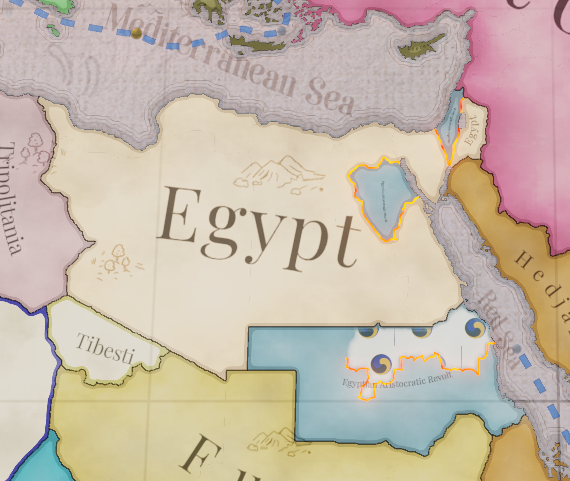 Which one? I went to meet with, what's the name - Datta? The textiles importer that was in Egypt, talking about the nasty business they had a few years back. 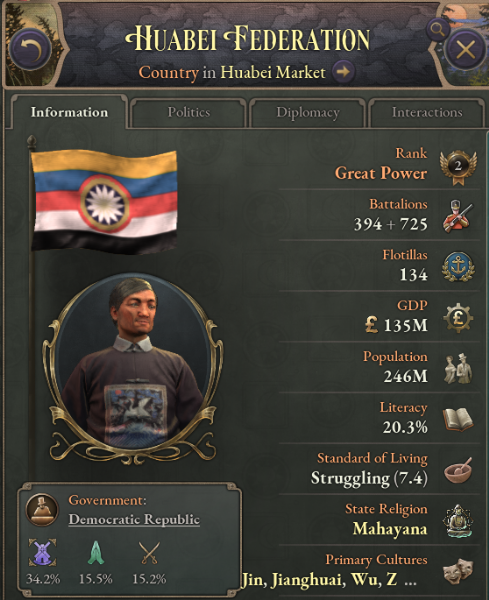 Yes - now I remember - there was the former diplomat, Yeshi, he lectured on the prospects on the Huabei Republic following the 'anti-monopoly, anti-landlord, anti-feudal' laws. The end of the oligarchy. How did they clinch that without a war? Well, I'm not going to pretend I know anything about political economy, and that sounds like a big one. But you seemed like you enjoyed yourself so I'm happier. What took you so long? Have any trouble getting here? 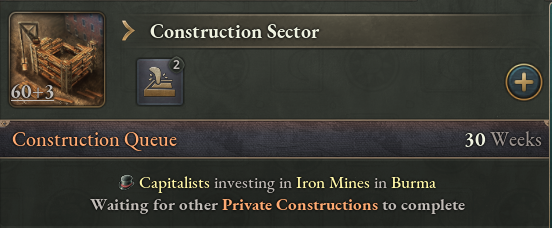 Yes - traffic all along the entrance to the Jialing bridge /and/ all the ferries. Lots of iron frames being moved for some new construction. And some guy carrying big baskets of litchi stopping in the middle of the road and I was in such a hurry I ran into him. That explains all the stains on your coat. I thought that was a new fashion. Well, they're all about their bright colors in Lhasa and the other big cities these days. Those dyes- 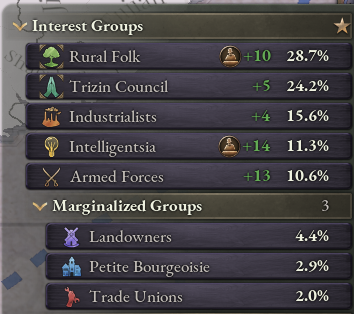 It's amazing how much has changed. After the war, I went back here as a clerk for the sugar company, and you went off to - what was it? I've finished my degree and I've taken the reorganized civil service examination to move up the ranks. In the meantime, for a bit of extra money, I've been a tutor. Well good for you! I could always have imagined you as a teacher. Coming from you, that means something substantial. ... Thank you. 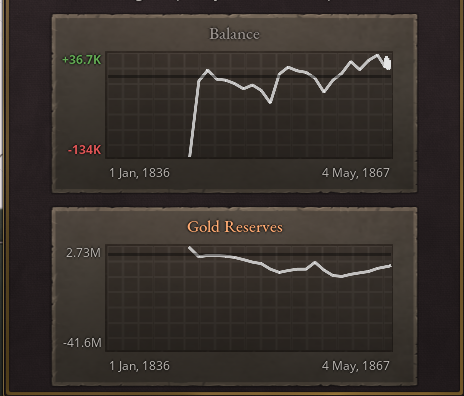 But yes - I am now being instructed on how to read the central government's balance sheets, which are in some ways not too different in some instances from those of a dry goods store's,  Although our reference texts are a bit outdated. There is still an vast corpus of feudal and monastic land law that we're trying to clean up. Corpses, huh? What can you really do with it besides get rid of it? Well, yeah. But there are some big landowners left, and a few old families that sided with the Republic -- not to mention all of the monastic holdings that survived- but a lot of the provisions on land reform are staying, of course. And not to mention the move towards monastic incorporation and local enterprises- Well. I see. They're keeping you busy over there. But, as you understand, things are mostly well- 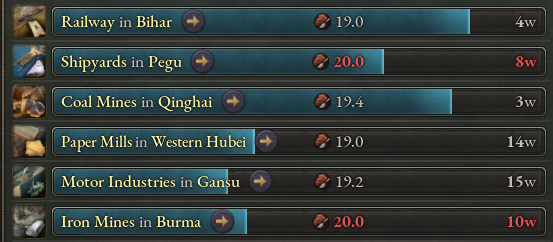 Mostly. You remember, what's her name, Chaoxun? She's in construction now and she had kept busy for a while. Always hiring more people. That's a good sign of things- Where does she work? I can put her in touch with a few people- See, that's the Qiudan I know. I think she's around Ganzi these days, working for a Tibetan company- 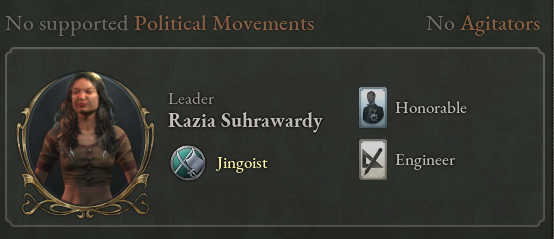 But - it's different in Lhasa. We're seeing a lot of new names and faces at the top. I see the Sikyong coming and going a lot, and he's been meeting with all kinds of people about things... You'll forgive me if I'm not singing and dancing at this news. I haven't seen that much change in my own life. Same as ever. Well, the new ones at least speak about building up the rest of the country compared to the old feudal estates. Capturing all the ministries. 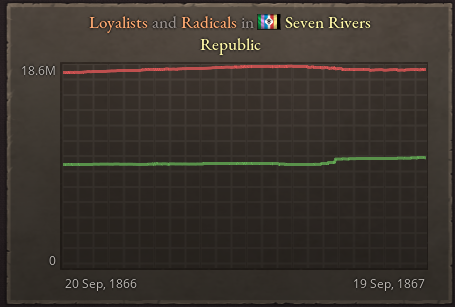 But I get the feeling that things are a lot better than they were, a lot of people are- well. Well, we still have to go back to the routine of the every day, you know. 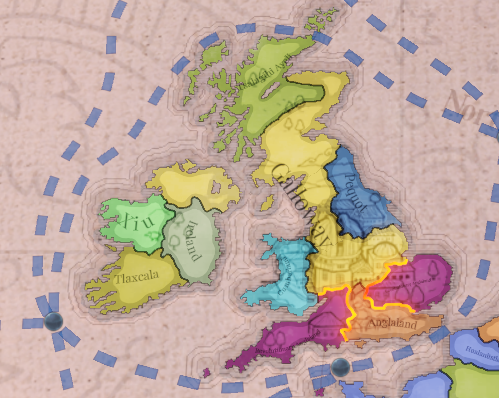 I mean I know there are people in less fortunate places that have to deal with the poo poo - I was reading about Anglaland and their wars in the paper years and years ago, and the story stuck with me - people hiding their kids from rebellious nobles running about with their swords and all that - but you know, that doesn't mean it can't be a drudge here too. Hey. You read things. What type of place is Anglaland these days? Is the war finished? Who is in charge? 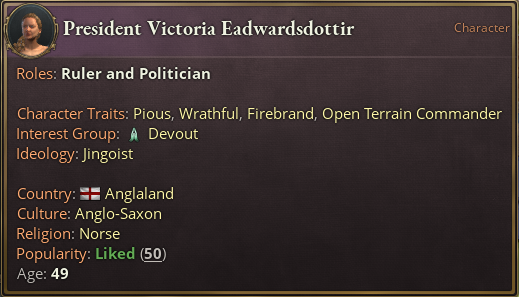 Victoria, of course. Who did you expect? She won and now they're pulling themselves together, too. Amazing. Damned incredible. It's amazing we live in a world with people like that. 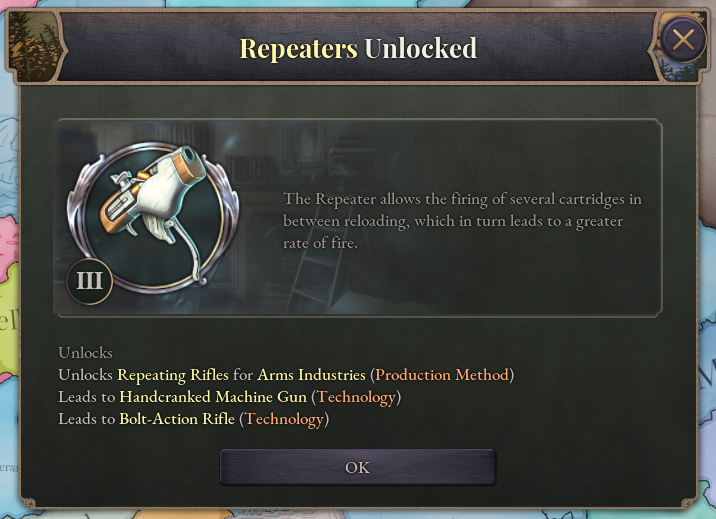 Could you imagine if those people had modern rifles and cannon? A line of those sheildmaidens with those new repeaters- Phew. Makes me wish I could go over to the other side of the world to see it happen. Just step away from it all and- Hey. You're in a mood. More than usual, even. We didn't sleep in the same tent for the better part of a year for me not to pick up on this. Speak up. 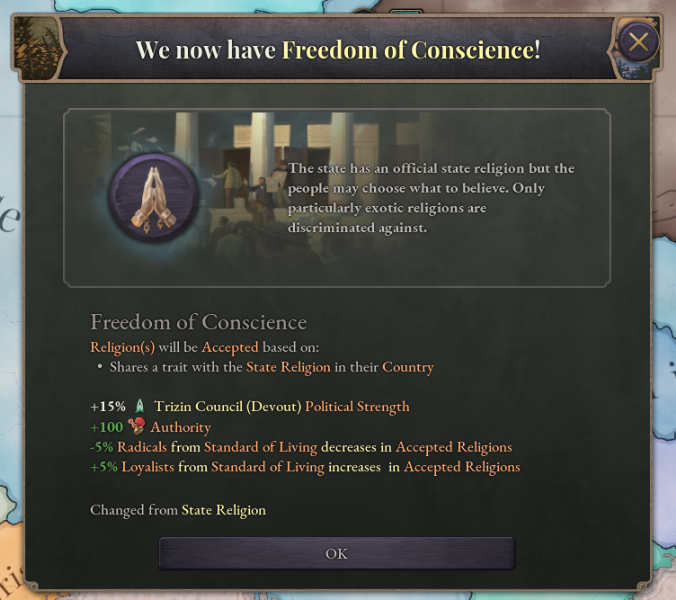 Say what you need and recite your mantras later. I fear everything. I am not who I was. I'm surprised to hear you say that, Weichong. 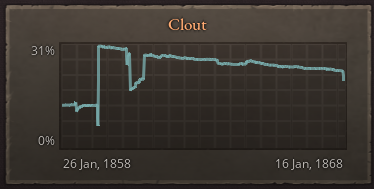 I cannot make any plea to the head of the local monastery or talk to the monks. I mean now they're morbing on about something or other. They did not concede much of anything, it just offended them. That's the problem. With them, if you want anything, you have to go pull it out of their as- Don't - don't blaspheme. Sorry. 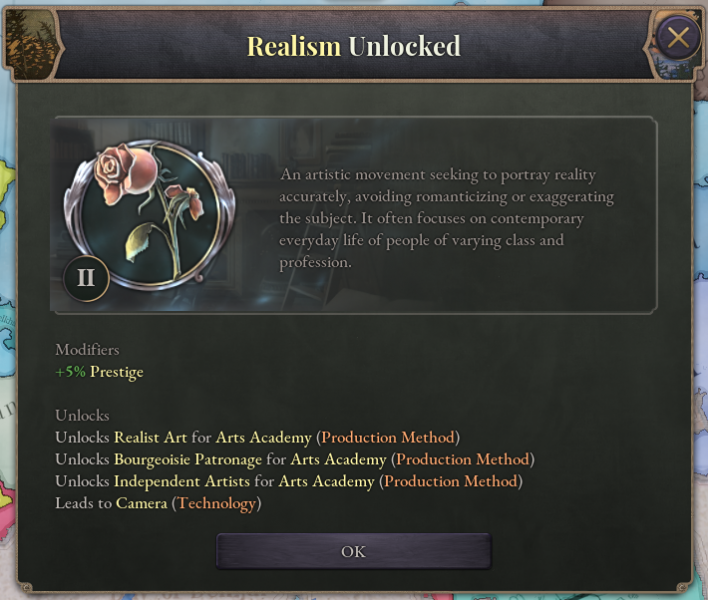 I have to see things as they are. I see everything falling apart again and I do not know what to do. I fear everything and I see the dead and I do not know what to make of myself.  I do not know where to turn. I cannot talk to my friends. I cannot read the papers some days. Chautirya is dead - a great woman, maybe one we needed in 1860, a bit full of herself, but she's now onto the next world. Roy - her plans were obscure. The journalists had trouble writing her speeches, like she had rocks in her mouth. This new trizin that's showing up everywhere. Neupane. What do you think of her? Do you think she's on to something? I think she might- 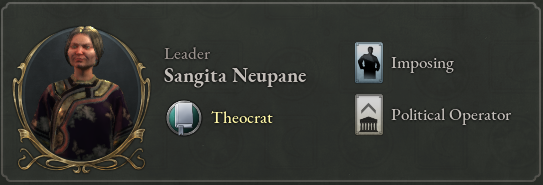 I think she's deranged. The Sikyong told me something, and I have to remember it; I have to remember that fear is a tool of those that would make themselves your master. Remember our songs of our regiment? 'Hang the nobles and hang the thieves'? Anybody who puts on all the paint and robes and screams about crystal knives, bones, and altars, at a building dedication, well- Old-time religion? Don't be disrespect- This was at a post-office. She stood right ahead and didn't even say anything to the crowd aside from the speech. /Old/-time priest. Going back to the war, or worse. I see. I'm sorry you feel that way. 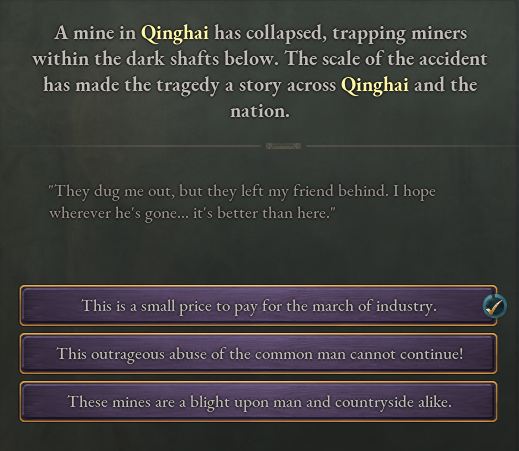 Look, do you remember what she said, after that mine cave-in in Qinghai? Which one? You'll have to be more specific. I don't even remember. Cold consolation, talking about altars of sacrifice instead of being angry at the people who ran the mines. Have to feel it means something, after all. 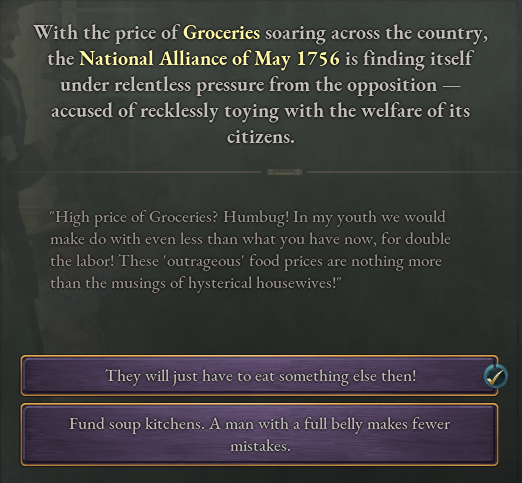 Look. I don't know. People are getting nervous. After the panic and the bank run in '68- everything got expensive. I was selling to all these coffee shops, you know, and half of them went bust due to the price of coffee beans going up, and all the customers - you know, your people. Students, clerks. Weren't buying as much coffee anymore. Some of these dogholes weren't even paying their tea servers the full wage or were stealing their tips. If they in a such a state of irresponsibility that can't even pay their workers, then to hell with them. That is the primary, fundamental- Exactly. And also, if rice and vegetables are getting expensive, how much do you expect people to hold on? You either cater to a few customers rich enough not to care, or to throw em out for- I don't know. Look, you're the smartest person I know. Do you think that morality exists? That the gods exist? What kind of question is that? We just started this- Qiudan, I'm being serious here. 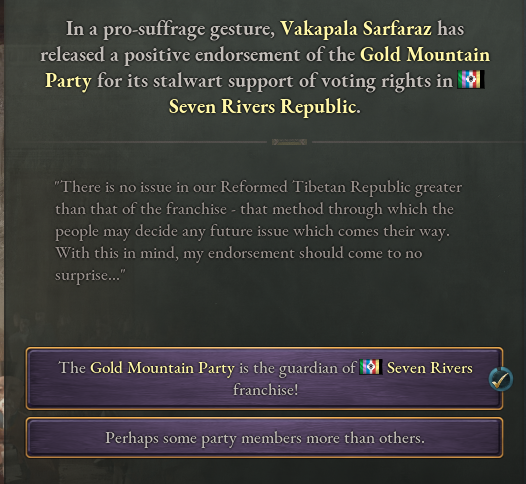 I think that people have values and sense of morals, even if they do not always follow them and turn away to other things. Do you really think there is that - that commitment to an abstract ideal? Natural law? I think that everybody - the heads of companies, everybody - turn to this because they have everything to lose. The damned aristocracy was an insult to natural law.  I think most people want to turn away from violence and want. Or at least to not have it happen here. They remember what we went through, what- 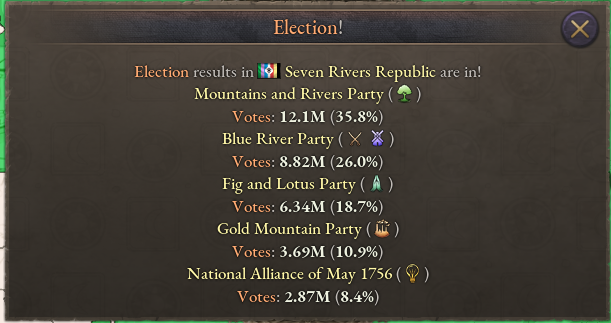 And that's how Shakabpa won it last time. 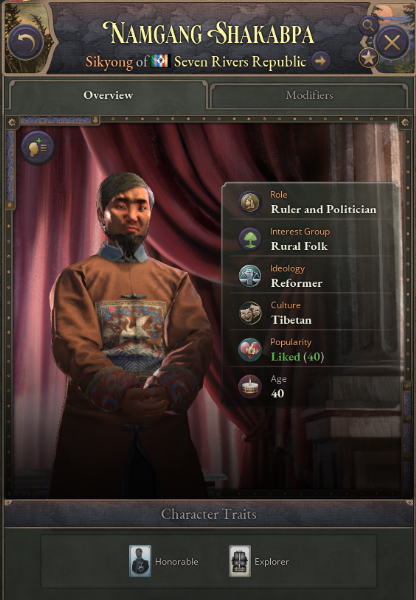 I get the feeling we dodged a bullet. Again. (They both laugh.) I was in his office when the last results came in over the telegraph. Everybody was cheering, you know, and he was slapping backs and being friendly. But, you know, I went to a storage closet to get some paper, and - he was just sitting in the corner after that, just looking exhausted. I would assume too much on his mind. The next day, he was in the office, talking about banking laws... 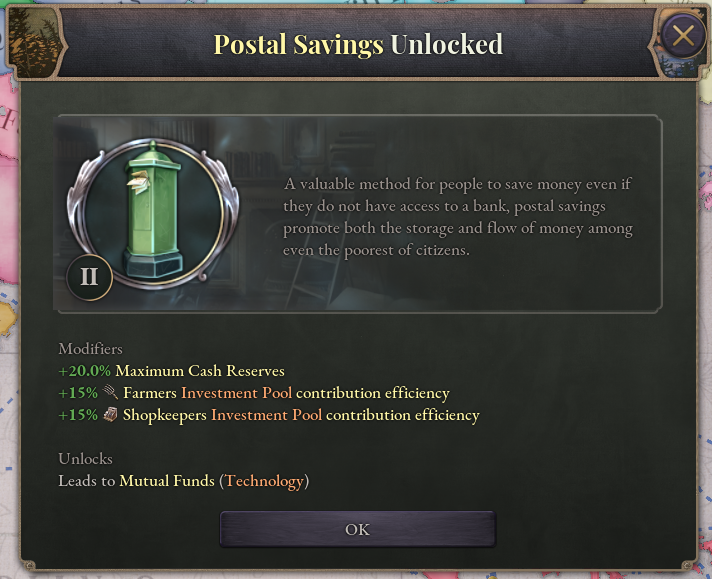 That postal bank saved me from the worst -- I kept track of my savings even after all the local banks went bust. And with how the postal system even is reaching out to the most remote villages... Like night and day, to even think about sending post to the interior. I could send letters to Dolma even though she's off herding sheep some place where birds don't nest and dogs don't poo poo. Oh no, I forgot about her- do you think she- do you think she has still has that hat she stole from that cavalry officer after he tried to shoot her? God, I remember that. He had that ridiculous gold-embroidered uniform and he was running about like he was in one of those comic operas. Play-acting at war. (They both laugh again.) He tried to shoot her, she hit him like - thwack, there goes his rifle, - and then got the hat. (They laugh.)  This is, I don't know. It is all going to be some interminable poo poo. It's going to end up like Palawan and Sulu. They have been fighting for years over something stupid- 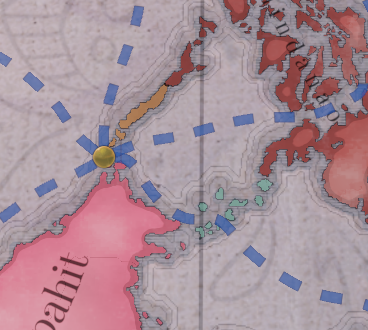 I prefer to think you were wrong, my friend. it doesn't work like that. 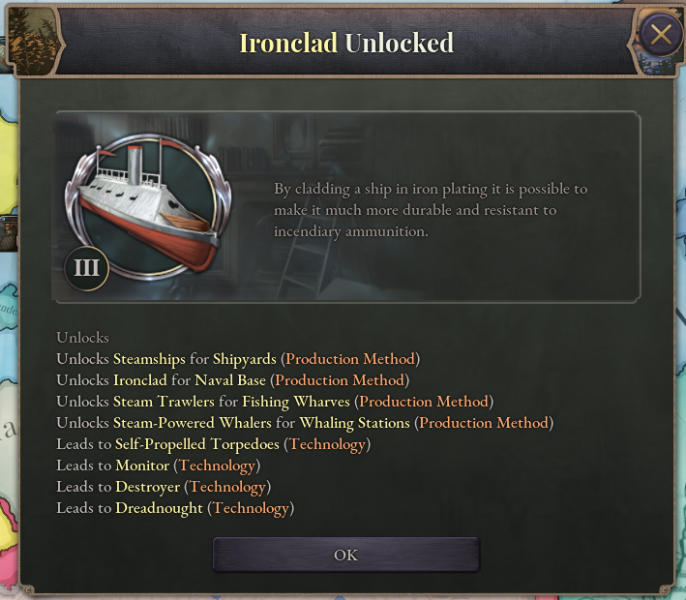 Maybe now, we are at a stage of ironclad diplomacy. Send the boats out to fight over distant territories, but we leave the rest alone. Nobody in their right mind wants to march off east to Huabei again- Or to wake up one morning to find their neighbor has broken the door in and will stab you for your furniture. Well, yeah, that. I mean, remember the first week, when we caught a few guys with their faces forcibly tattooed - RESTORED TIBETAN EMPIRE on their faces? Poor fellows got conscripted, ran away, got caught, ran away again, and they were lucky they found us. Do we know what happened to them?  I ran into one a few years back. Hard to miss, as you know. He's in a glass factory now. Doing well for himself. Ran up to me when he saw me. See? You're an upright fellow.  I thought about running away to a Huabei colony or something or other. Go see the other side of the world and all that and if that was the end, that was the end. I'm glad you didn't. 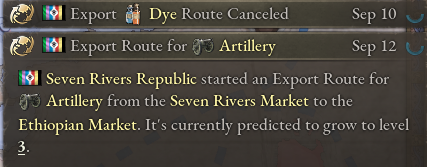 It's always bad when I walk past the factories, though. The fires, and the loud bangs. Keep the factories going all day and night- It's a good thing I never went into factory work like my brother. I might agree. 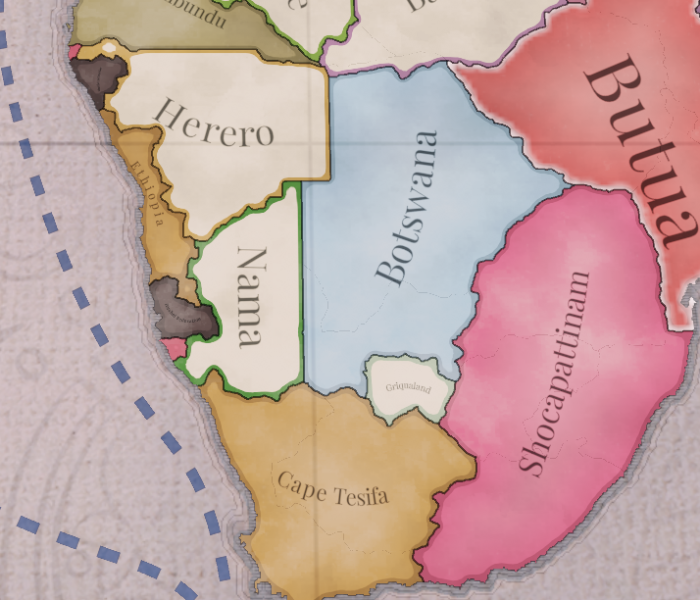 Huabei and Majapahit and all the other empires of the world can fight over every patch of sand and annoy the locals far away. drat 'em. I don't know. It's-  From my limited perspective in Lhasa, the people at the very top of the pyramid of the Armed Forces still tend to take their responsibilities and their oaths to the law rather seriously. Mirza, the man who took over the Army of Bengal after Rana retired - he was all about talking about improving the citizenship laws for the line infantry and backing other social programs. And you believe him? As he was speaking in private and not for the crowd... 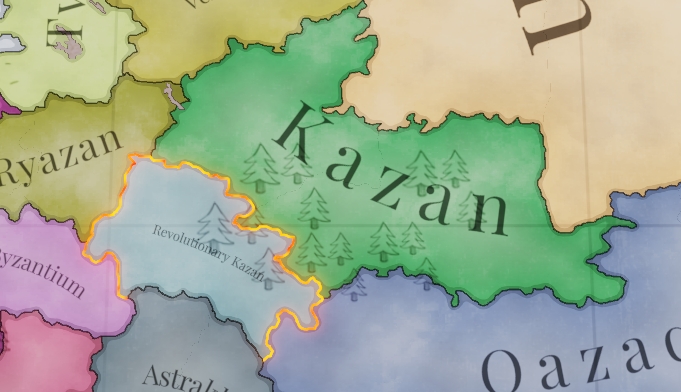 I don't know. I tend to think it's all going to be -- the law of the battlefield, all the time, forever. Somebody kills the last guy so he gets to be in charge. All human life ever is... Not all the time. That's what that little group of nobles used to think about the state and how to run it. And where are they now? 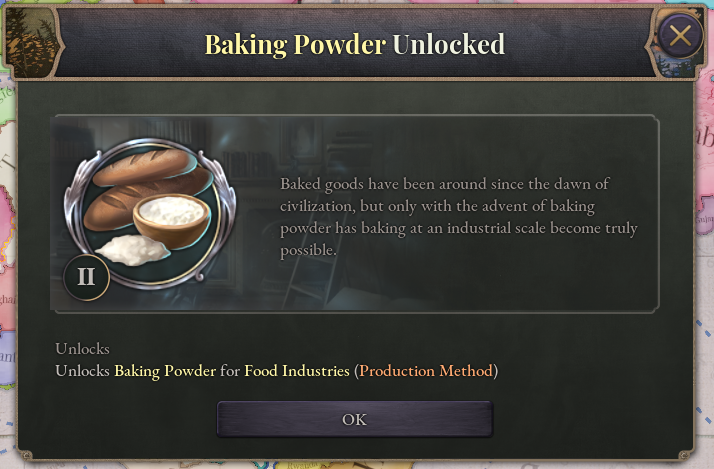 I mean they're going to promise you banners and marching drums and flags all the time forever. But they don't have anything else. They can't offer any of that. What it is really all about now is getting bread on table or rice in the bowls- And sharing tea with my friends. And sharing tea with my friends. And if one has the time left over, putting in the work to leave things better for everyone around you. It's not order versus chaos as the nobles say; its justice versus injustice...  Now I know I just sit in an office all day, but I heard about those mining cave-ins, and all the kids, and I made sure that every drat petitioners had their say. I helped organize things for the Sikyong and had them meet with the members of the legislature... 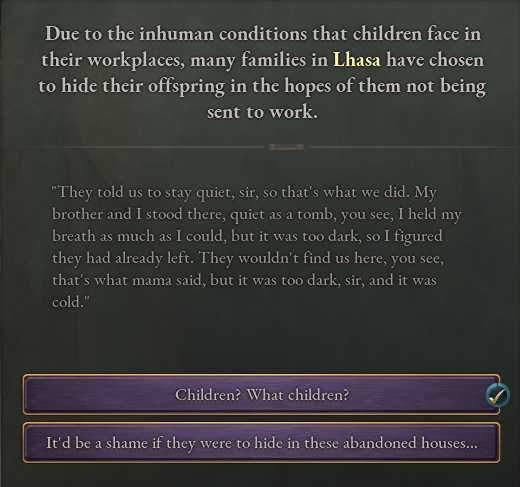 I don't understand why we have go through all this shadowboxing. People had to do all manner of things to safeguard their children without the law; and I don't know what it will do now. There has to be some basis behind it, you can't just tell- You really want to understand what it is, you have to understand what people will do to get around it. It is not just a tool of divinity, it won't force compliance, but it is a tool against the unjust, and to reshape the world... Yeah. Anything that gets them out of the factories into the schools is something else. A whole generation of people who may read and write like -- get clerkships and other things. It's impossible to believe. More than I would have dreamed of. My grandmother couldn't read, my mother couldn't read, and I sit at a desk inside. A life better than most people would have dreamed of. 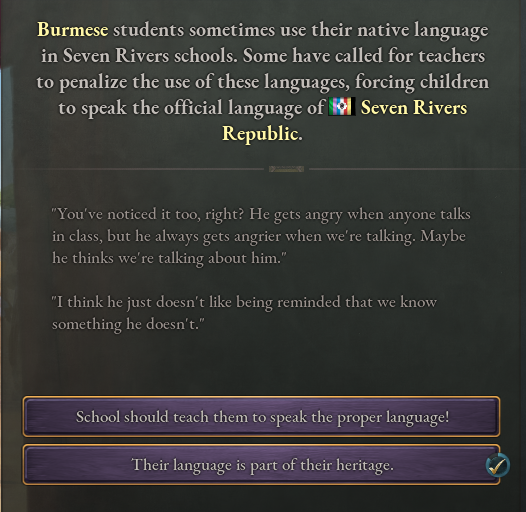 Schools to make civilized modern people and people to make a republic. Easier said than done. A goal to aspire towards. But one that is not without adjustments - I think that's why I see all the Burmese students stick together after class - common experiences and language. Common experiences like some horse's rear end makes fun of your accent. Exactly. Then you get back at him in your own language. My man- (They pause for a while. Sipping their tea. It's getting darker out.) Excuse me. I didn't mean for the conversation to become so heavy so quickly. It's fine. 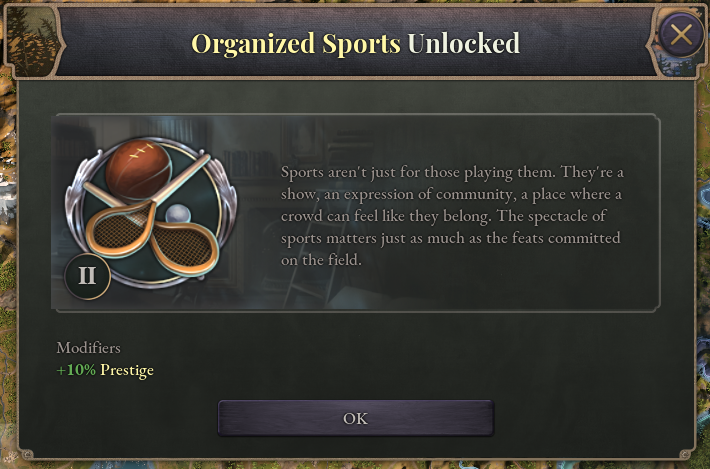 Watch anything of interest recently? Watch-? Like what. What do you mean? See any games. Sporting matches. Oh - last week I went to see a Mongolian theatre troupe - not the traditional way, its all an excuse for wrestling. They put on a fun show. They had a villain dressed as Namgang Wangyal- 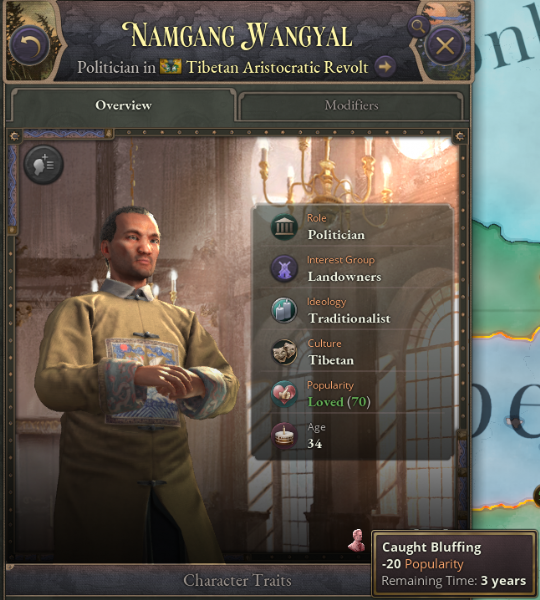 No poo poo? Lots of cheering. That was a good one. Their heroic character was dressed as Empress Lasya the Holy and she slammed him in a waste basket. Oh that sounds very fun. When I was back in Lhasa, we saw a bunch of Anglisch exchange students play something- they stuck wooden posts in a field and ran about with a flat wooden bat. What do they call it, bat-ball? That sounds silly. It was rather complicated. A lot of people ran about and I could not understand why. Why do anything? Right?  Why do people in your world do anything? Break things off, argue over this, keep secrets. You know the plays they put up for us on campaign, right? Why do people do anything? Petty grievances, misunderstandings, or self-interest. Maybe the old writers were right. Maybe they were wrong.  I can't say this is my world exactly - I'm only on the outmost edge - but a lot of disputes are still personal. Organizations are still led by people- 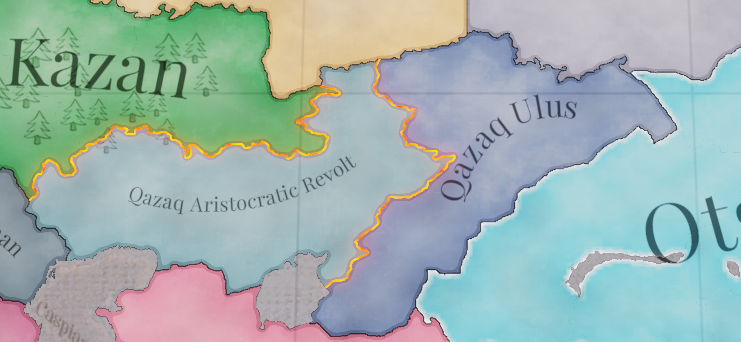 And for any great organization, it is a matter of human beings. These situations are made and taken apart by people- 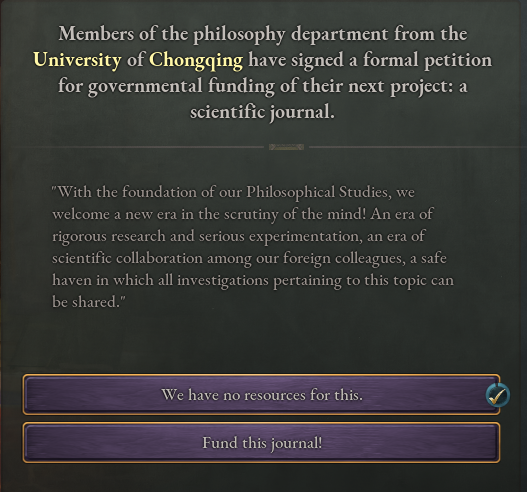 Well, there are journals and academies full of people writing and debating about the subject; it's never a solved matter, as some new letter or documentary source is picked up. It's a long conversation- I don't rightly understand it, myself. 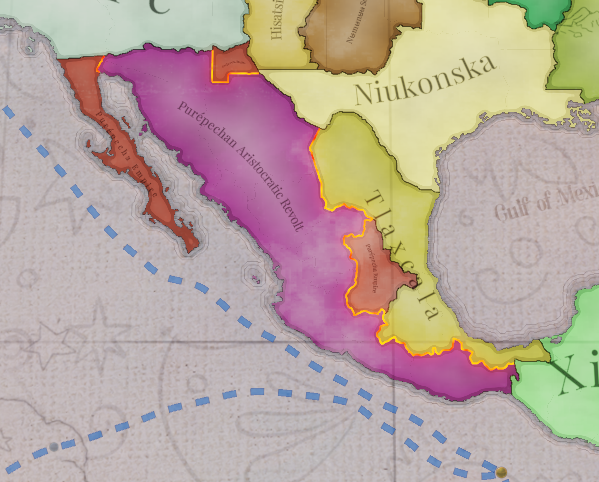 One gets the feeling can't push things too far, or you'll lose everything.  Maybe when the guns start to fire again, they do it far, far away from here. 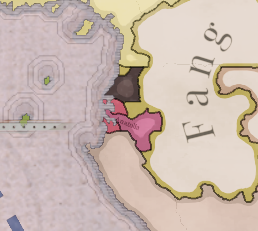 And that won't solve anything either. It just means getting shot at my strangers far from home, or being knocked off your feet with malaria. It's a fools errand. 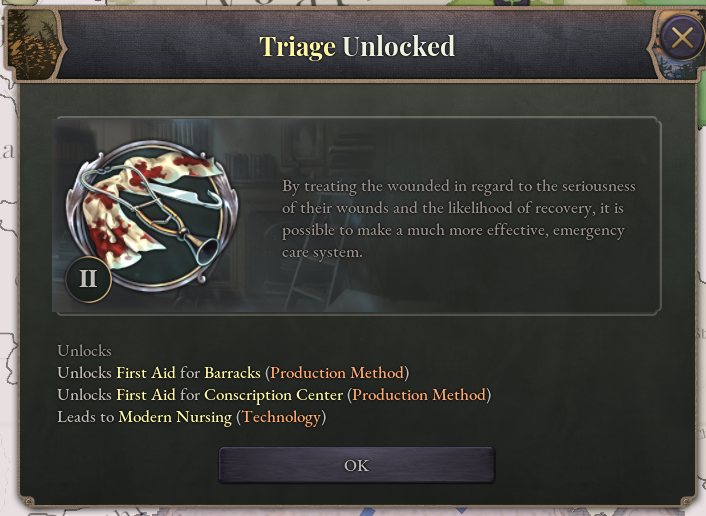 We have to do the work here -- staunch the bleeding somehow. 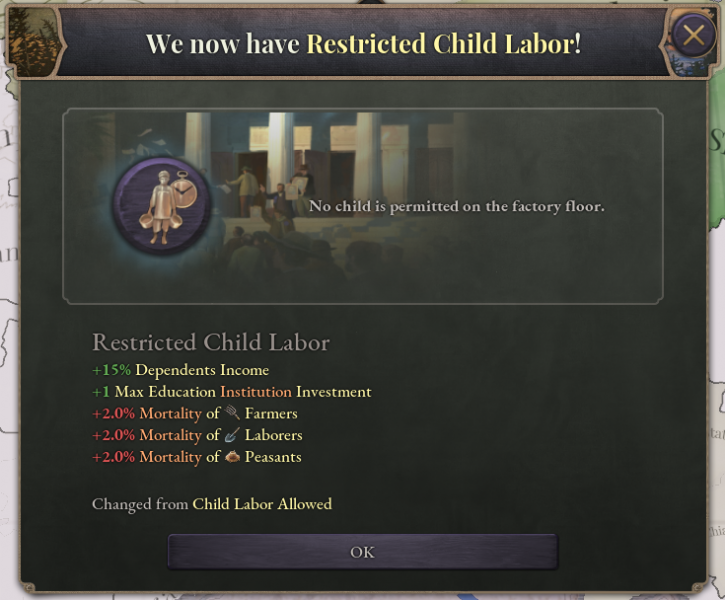 And now in a few years we will see the end of child labour in mines and factories. ... Maybe sometimes good things can happen. Hey, is that the newspaper boy? Is that the evening edition? What do they say? How is the count going? It's way too close. It should never have been this close. ...It's over. ... It's over? What about Sichuan?  What do you mean it's over? Look at these vote tables for the provinces. There's no way anyone else is making up the gap. The Blue River and their allied minor parties are going to- What do you mean, I need time to add these up. Look at the headlines. STILL IN DOUBT - M-R PARTY CERTAIN OF VICTORY - No evidence for Tianshan-- They're saying that to sell more papers. Look at the mathematics. Neupane is going to be Sikyong. 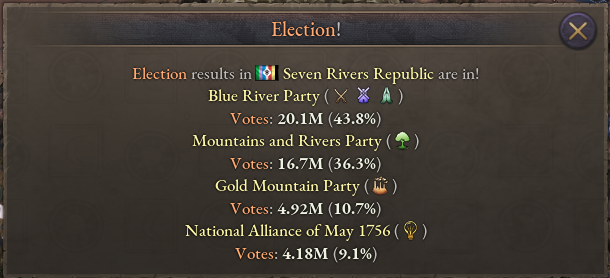 Right. So - that only means that we don't have the Tianshan results at this point, and the Gansu- Is that really going to make any difference? Sichuan and Chongqing went over by this large a margin and you're asking about Tianshan districts? 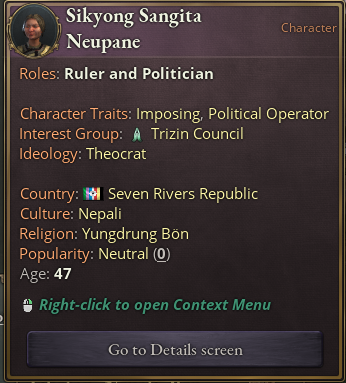 Well now what are we going to do? ...I don't know. MAP OF THE WORLD: 1872 
Kangxi fucked around with this message at 17:09 on Apr 26, 2024 |
|
|
|
I'm sure it'll be finee
|
|
|
|
The best kind of revolutions are ones that go in a circle.
|
|
|
|

|
|
|
|
Lasya the Holy's coming back, baybeee.
|
|
|
|
Well, that's not great.
|
|
|
|

|
| # ? Apr 29, 2024 16:20 |
|
I mean, how bad can it really get? It's not like she's a jingoist.
|
|
|
|



 "No. I renounce you. I will do it. I deny you all. I speak this to you with lime and sulfur. Your iron swords are soft as butter to me. Your armies are now dead and your sun will rise without you. Your time is over. Do what you want. But I will be rid of you, all your invisible eyes on my every move. I stick my hairpin in their eyes. As a wandering ghost I will flee from you. I will go - get away from this. I will move to the grassless ruins of the top of the earth. Give it all up. Whatever. Get out of this. They are not going to make me a sacrifice."
"No. I renounce you. I will do it. I deny you all. I speak this to you with lime and sulfur. Your iron swords are soft as butter to me. Your armies are now dead and your sun will rise without you. Your time is over. Do what you want. But I will be rid of you, all your invisible eyes on my every move. I stick my hairpin in their eyes. As a wandering ghost I will flee from you. I will go - get away from this. I will move to the grassless ruins of the top of the earth. Give it all up. Whatever. Get out of this. They are not going to make me a sacrifice."